Agrisera 40 years
This year, Agrisera celebrates 40 years in the antibody business (1985-2025)! We are very proud and excited about this milestone, and have put together a collection of interesting stories and information to commemorate our anniversary. Check out Agrisera's history, exclusive interviews with scientists, and interesting facts about the production and validation of our catalog antibodies!
Page contents
Click on a heading to jump directly to that segment, or scroll down to check out the whole collection of exciting information.• History
• Scientist Interviews
Prof. Douglas Campbell
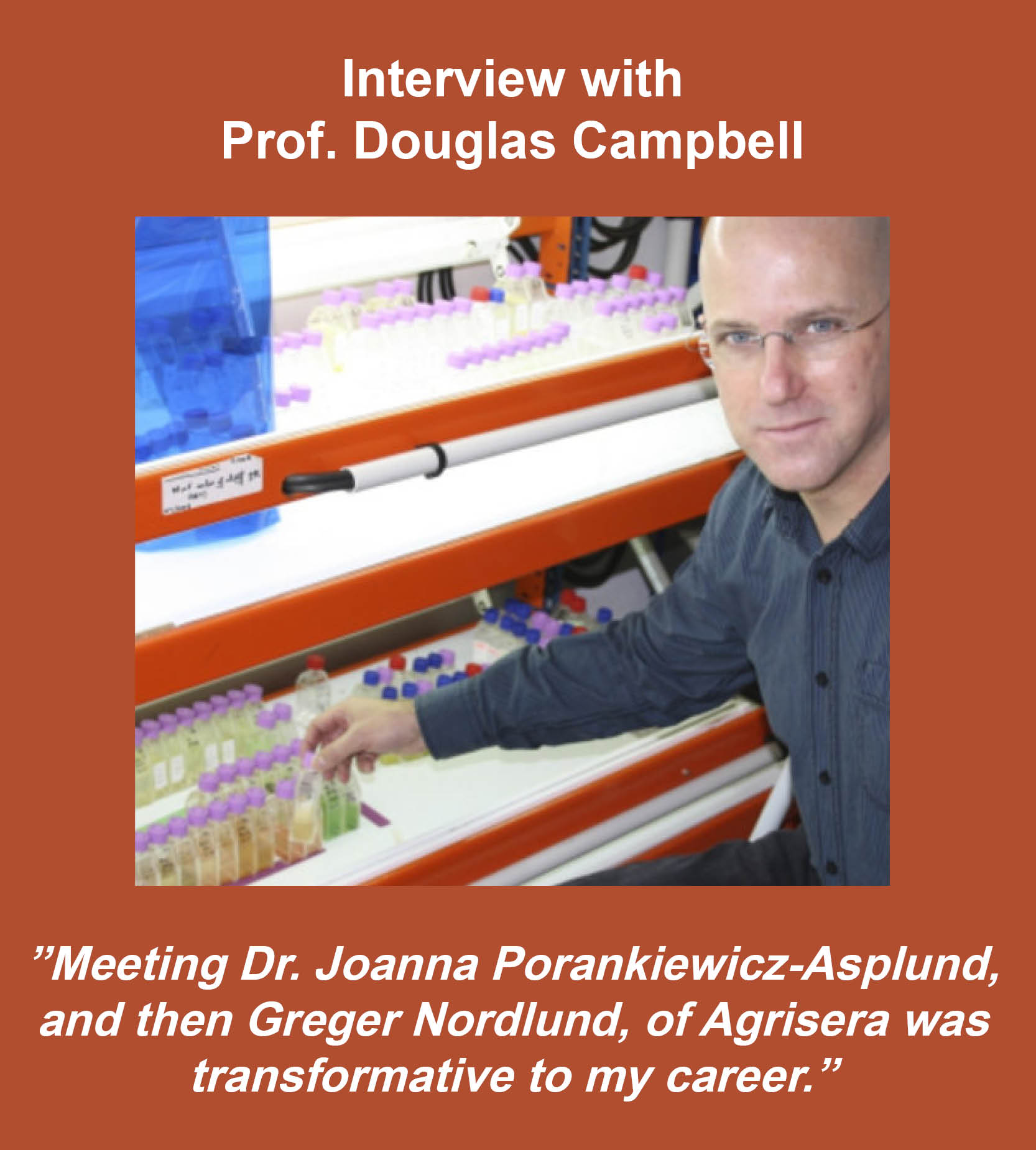
Mount Allison University, CanadaProf. Sabeeha Merchant
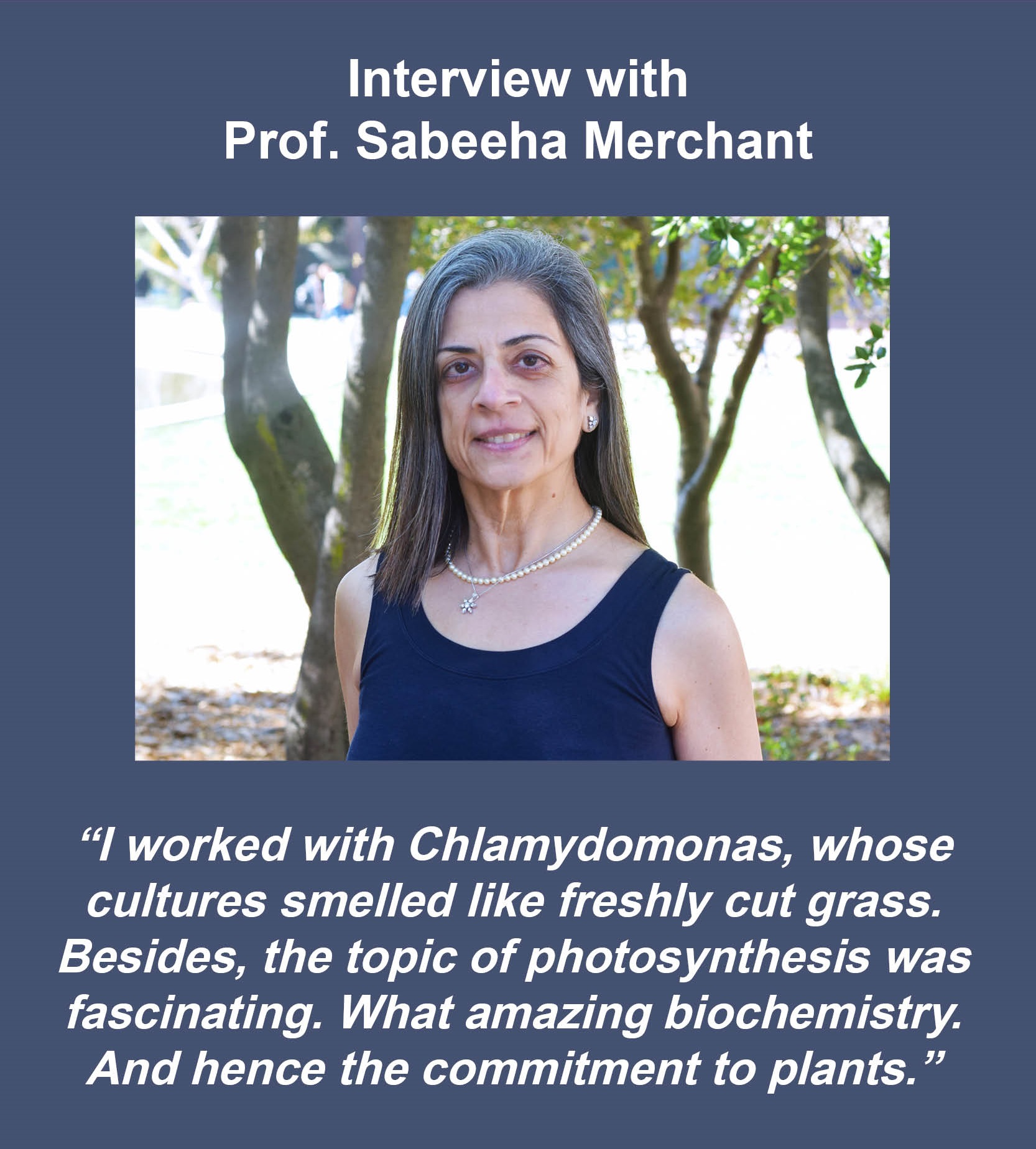
University of California, Berkeley, USAProf. Junpeng Zhan
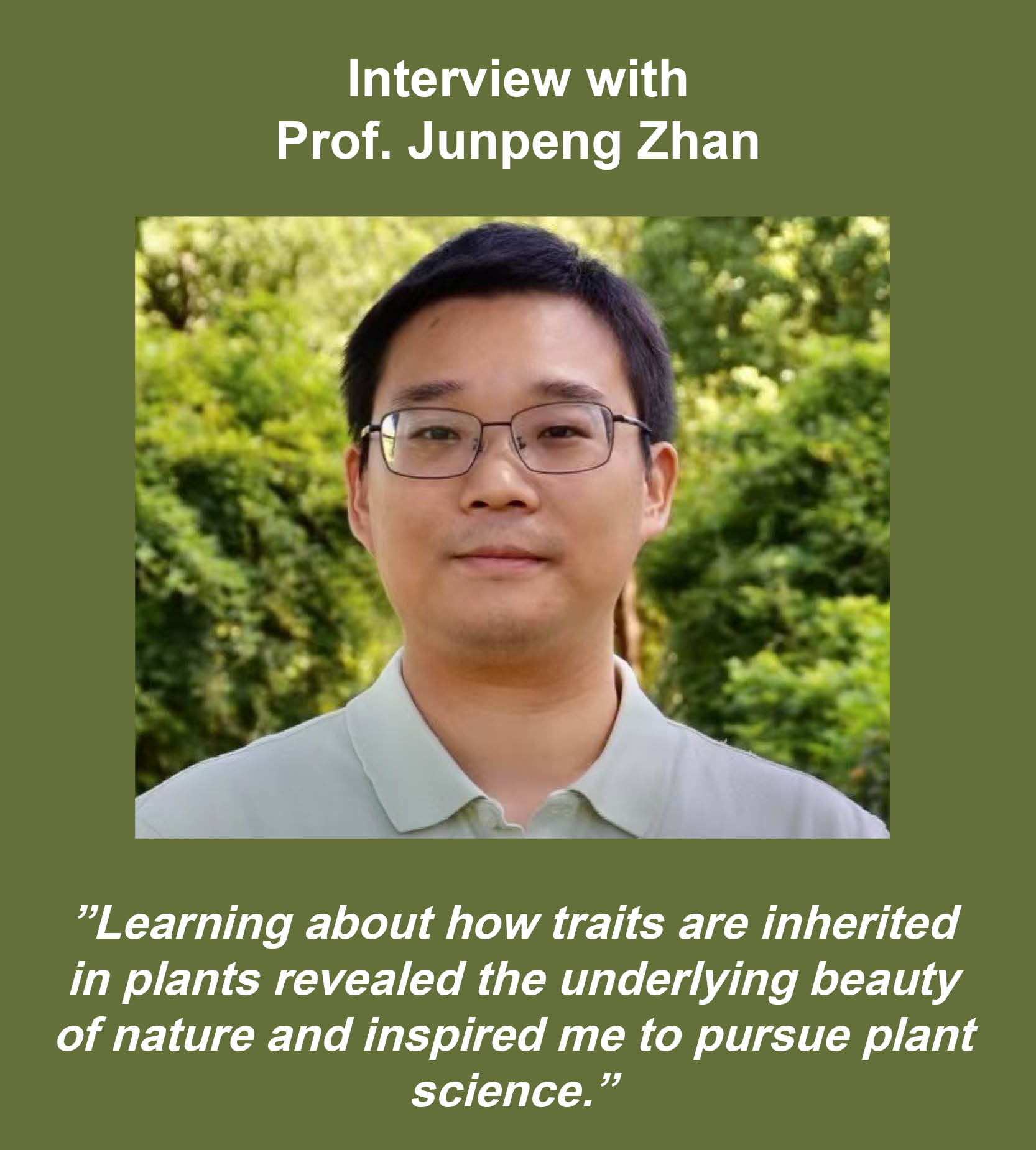
Huazhong Agricultural University, ChinaProf. Rebecca Roston
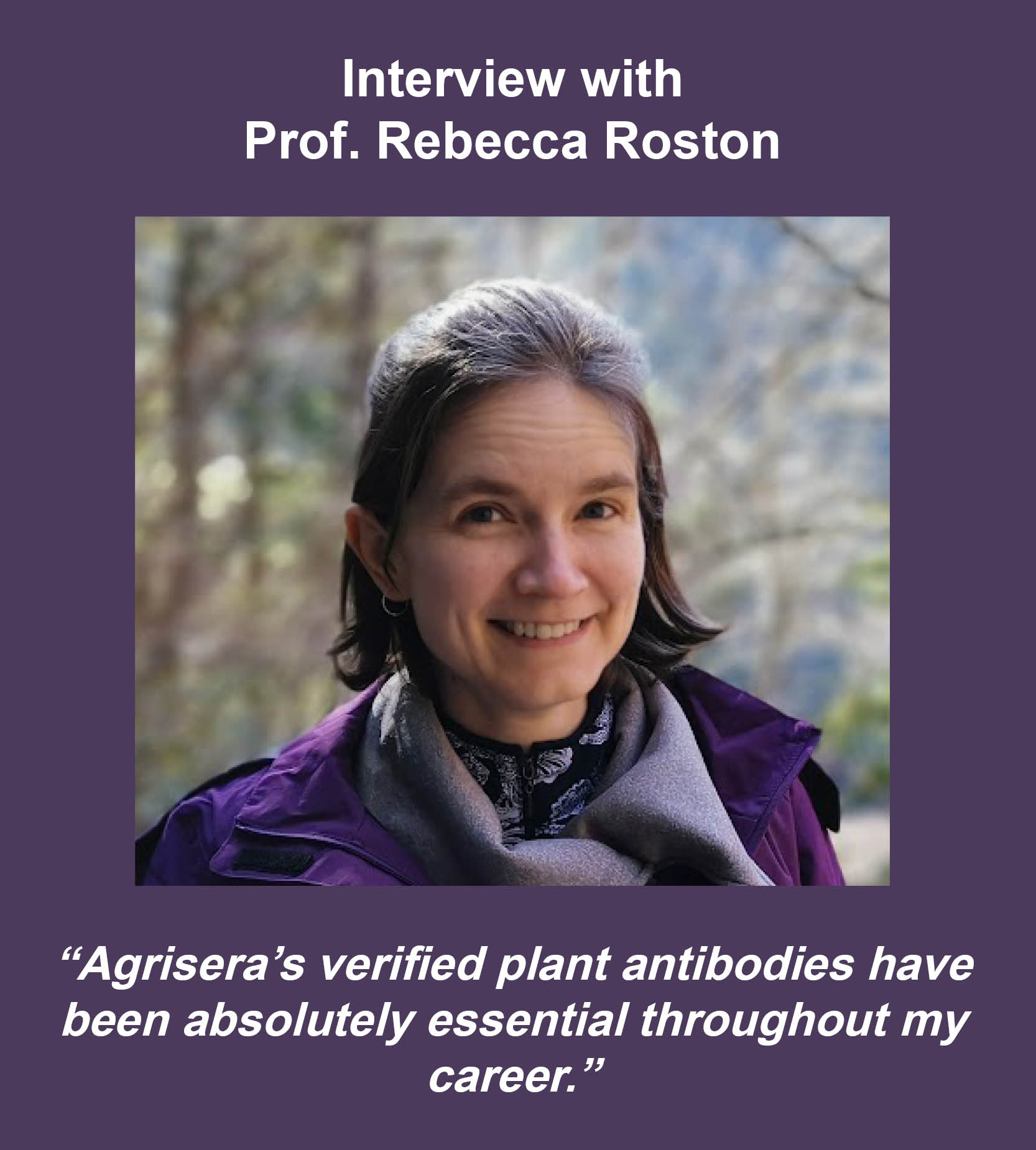
University of Nebraska-Lincoln, USAProf. Martha Ludwig
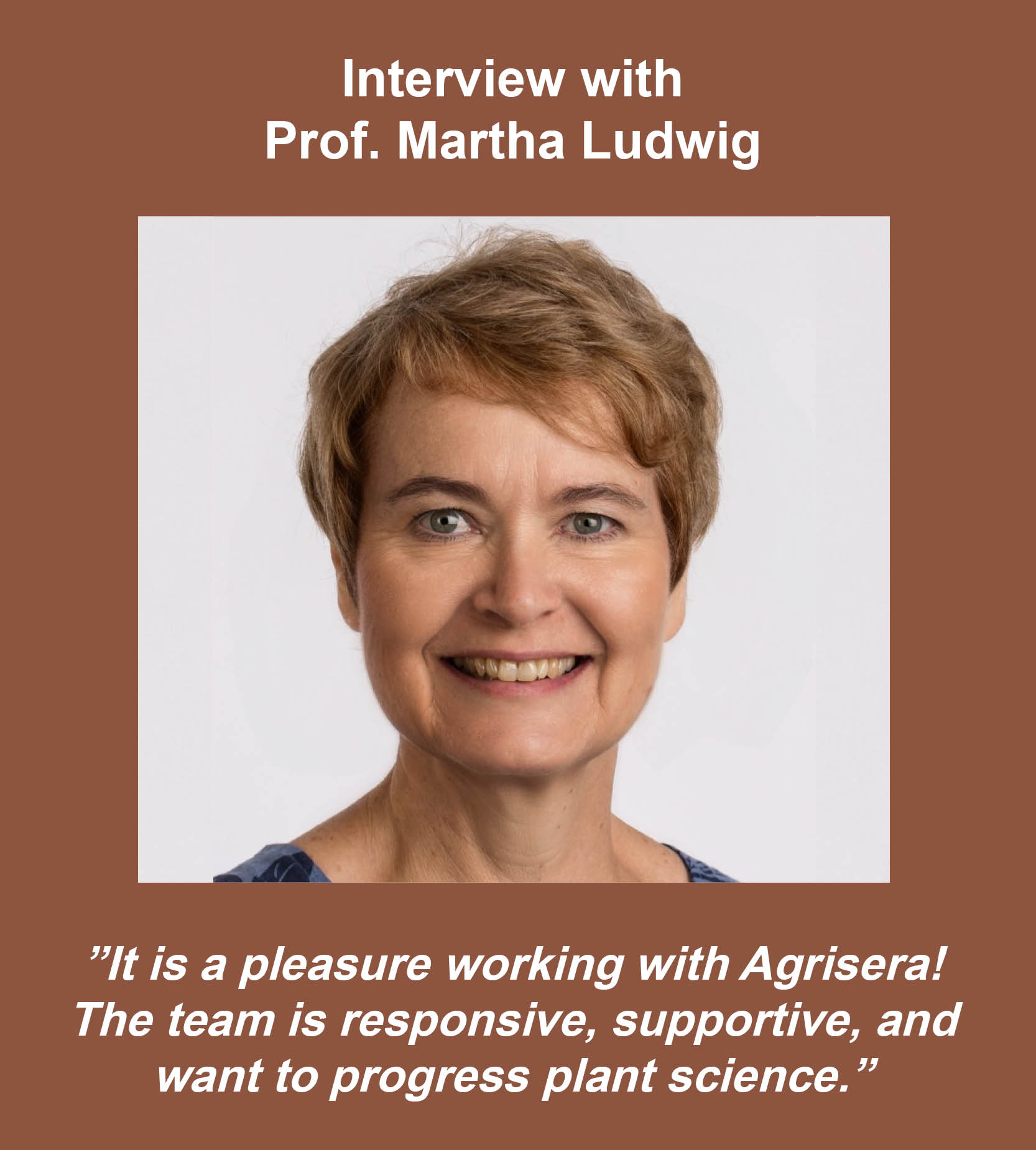
University of Western Australia, AustraliaProf. Rossana Henriques
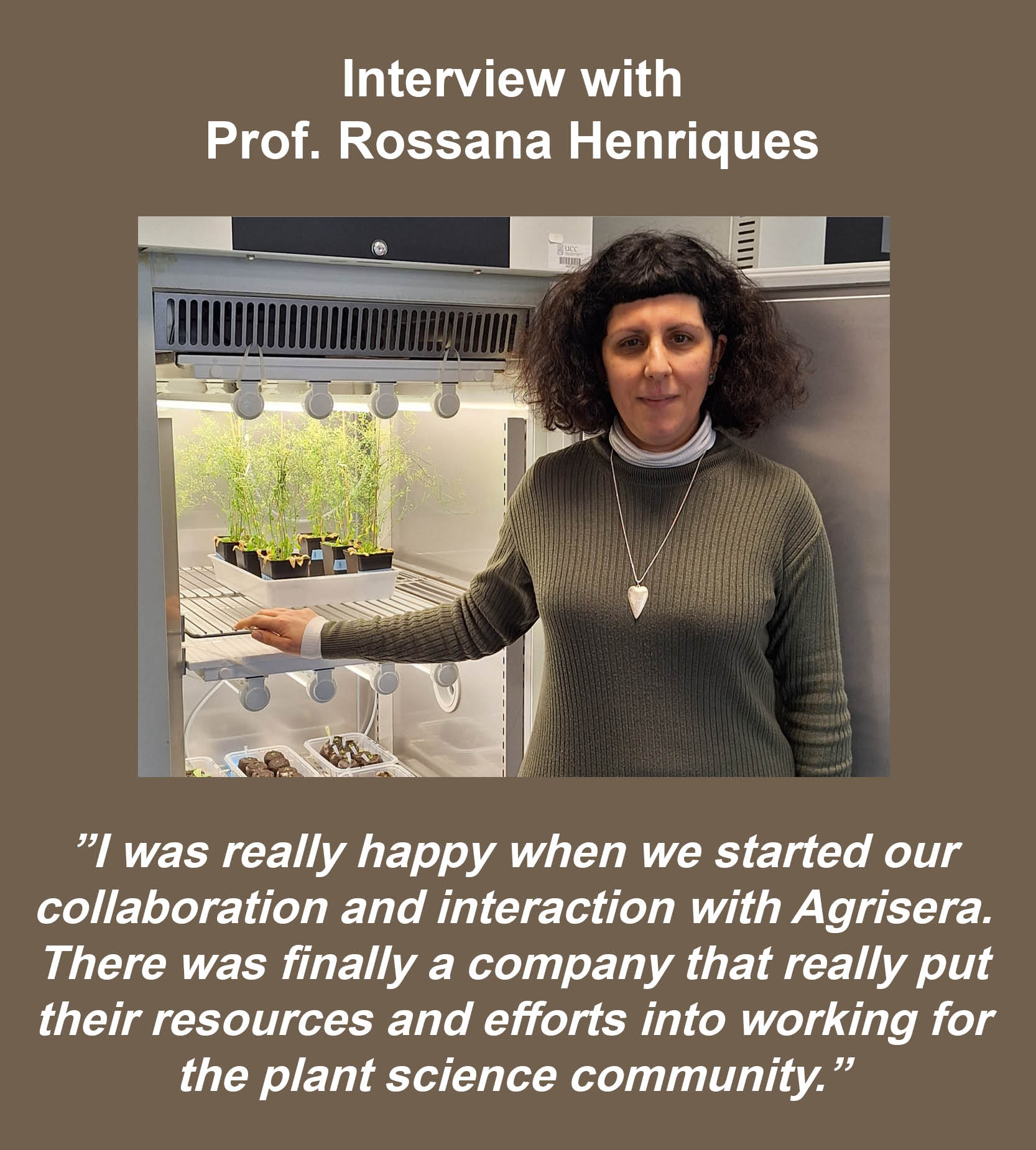
University College Cork, IrelandProf. Eiji Nambara
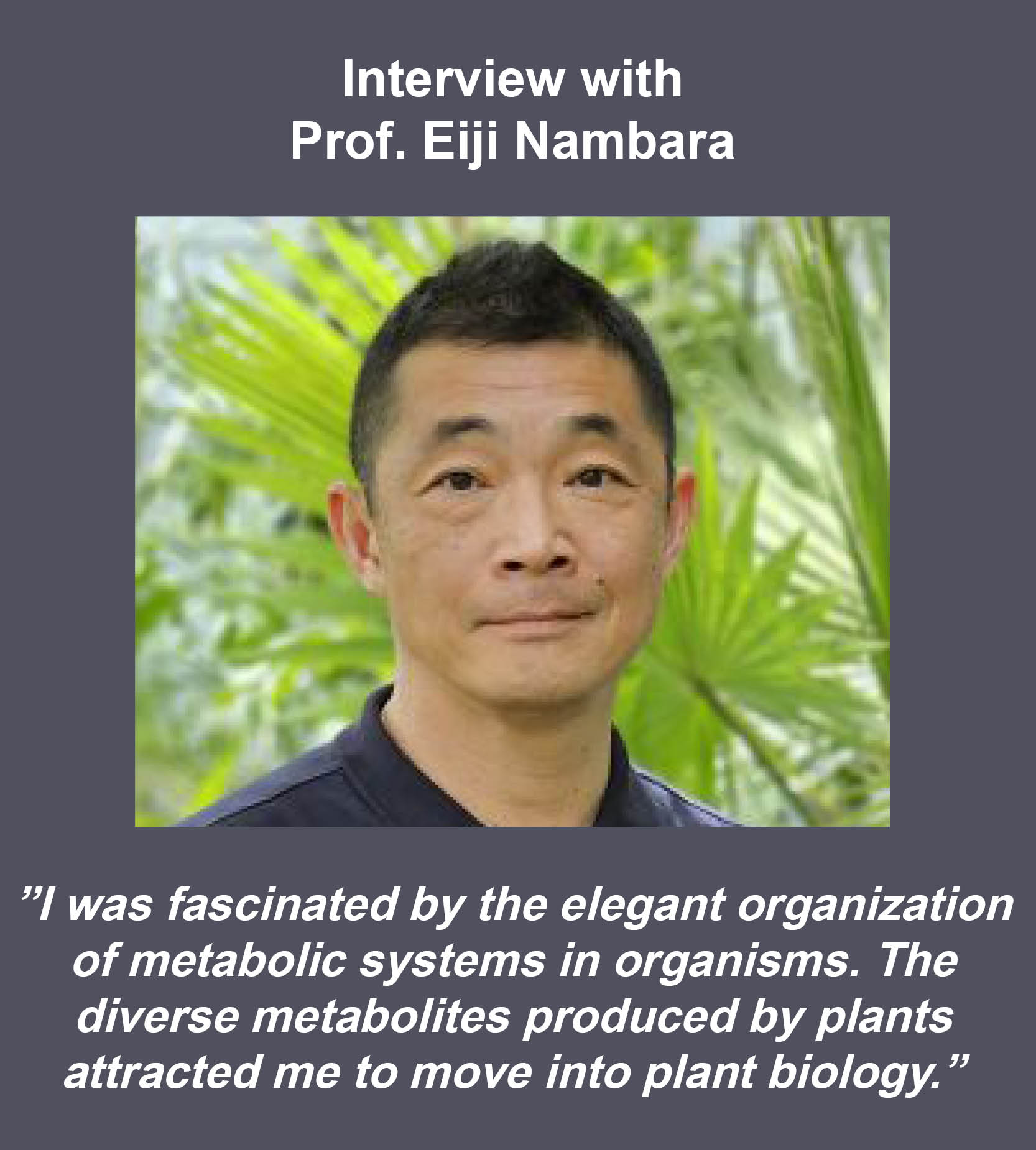
University of Toronto, CanadaDr. Heni Hitaj
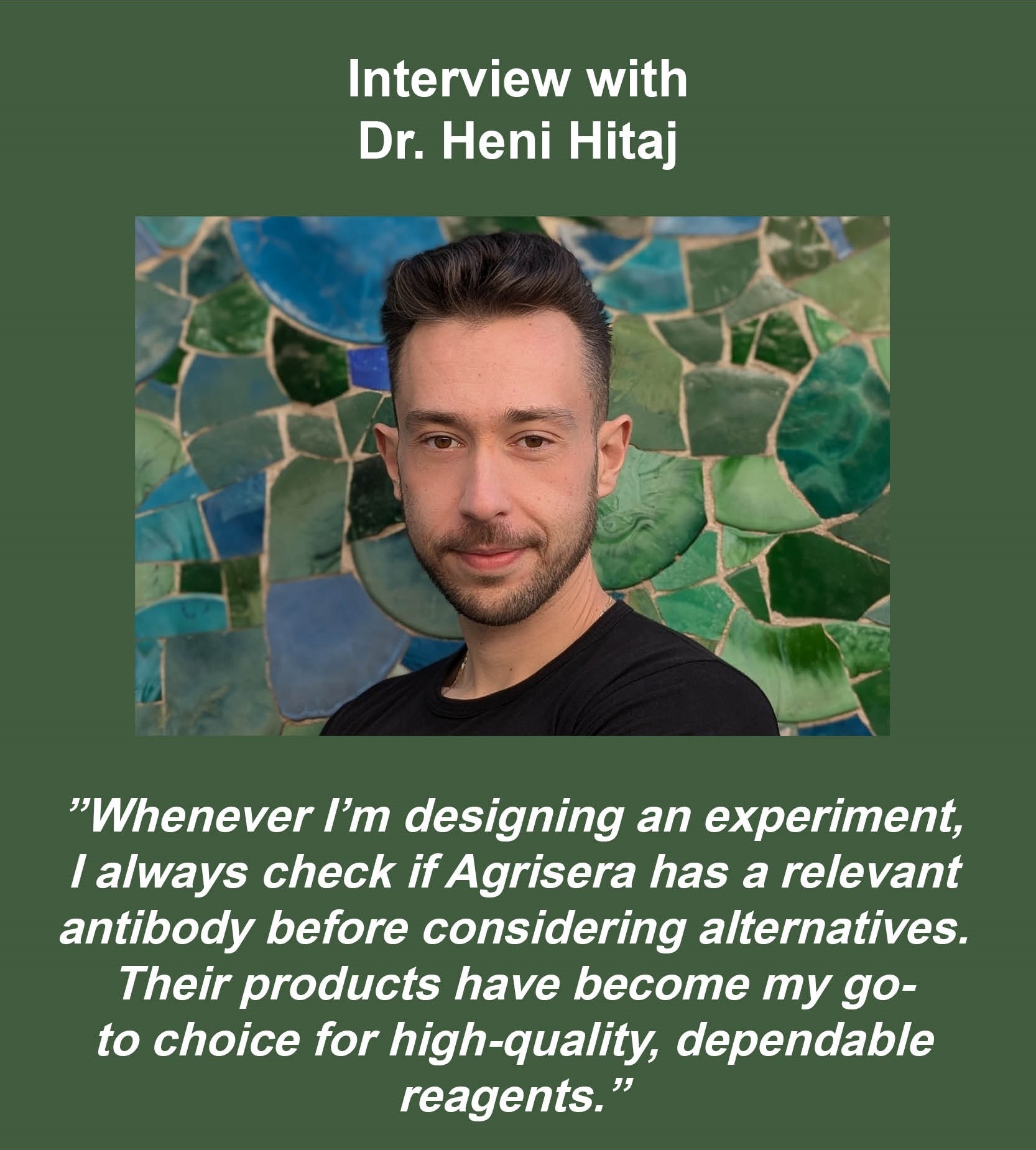
Freie Universität Berlin, GermanyProf. Blake Meyers
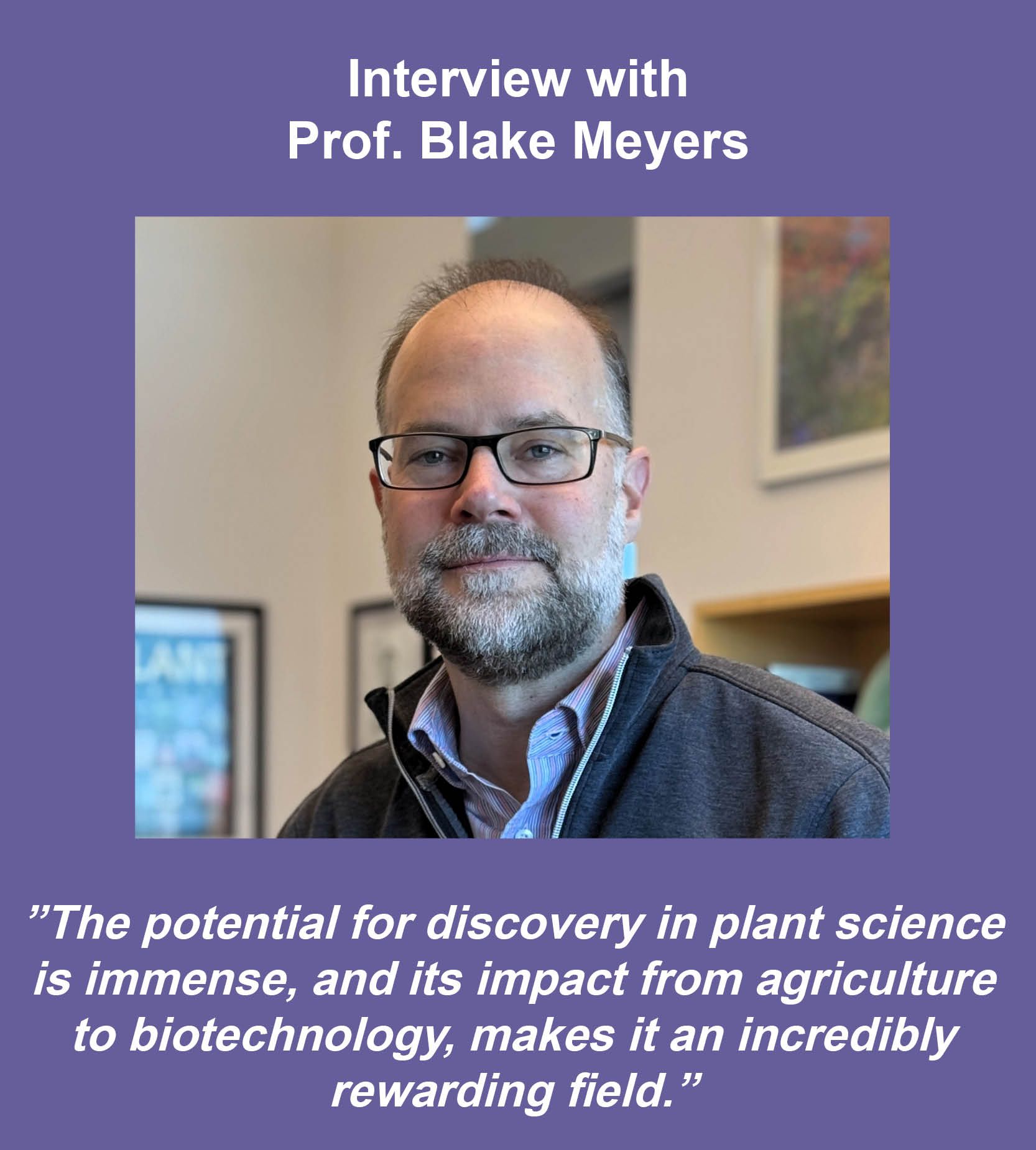
University of California, Davis, USAProf. Govindjee

University of Illinois at Urbana-Champaign, USAProf. Emilio Gutiérrez
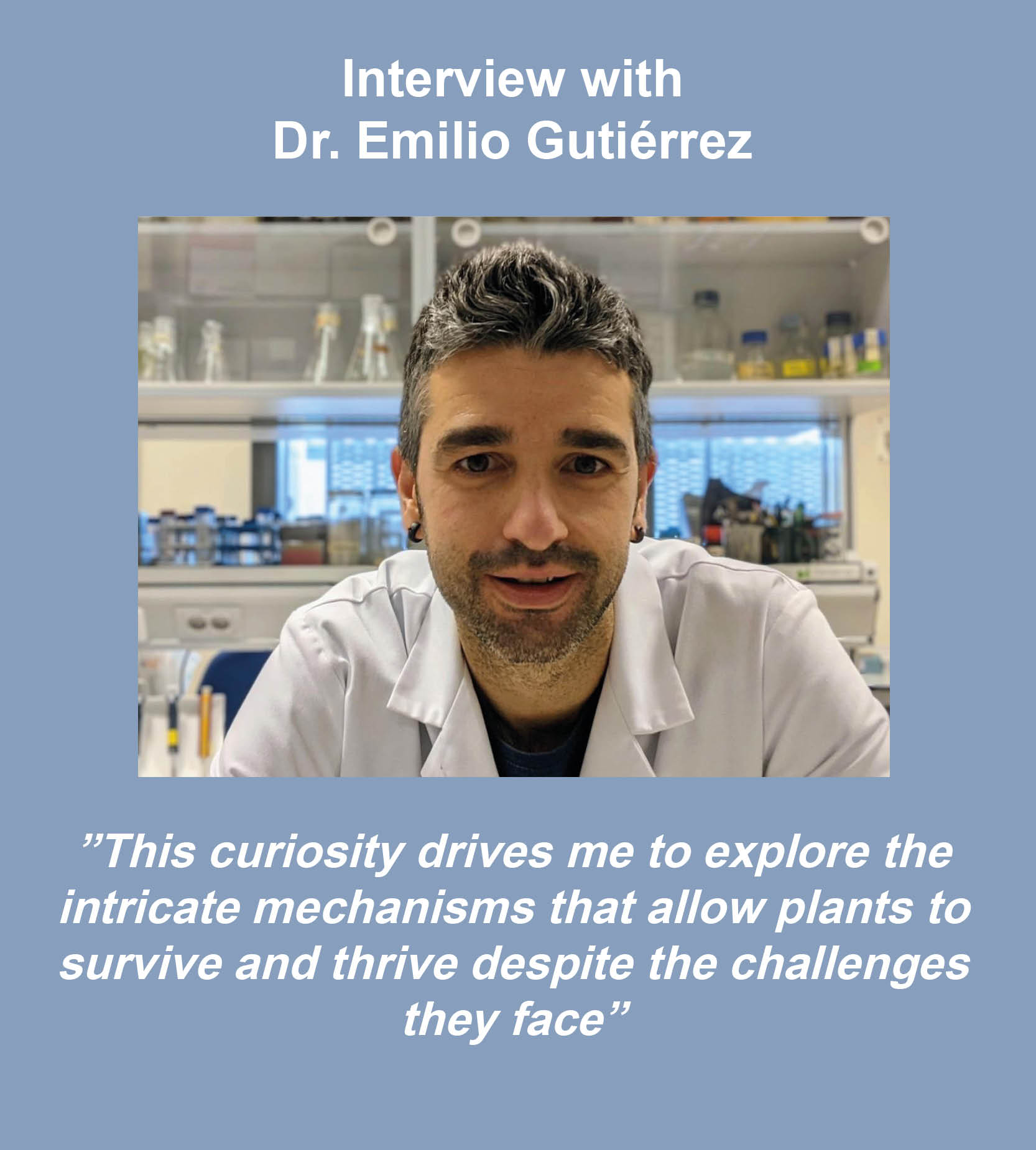
University of Seville, SpainProf. Andreas Hiltbrunner

University of Freiburg, GermanyProf. Viktor Žárský
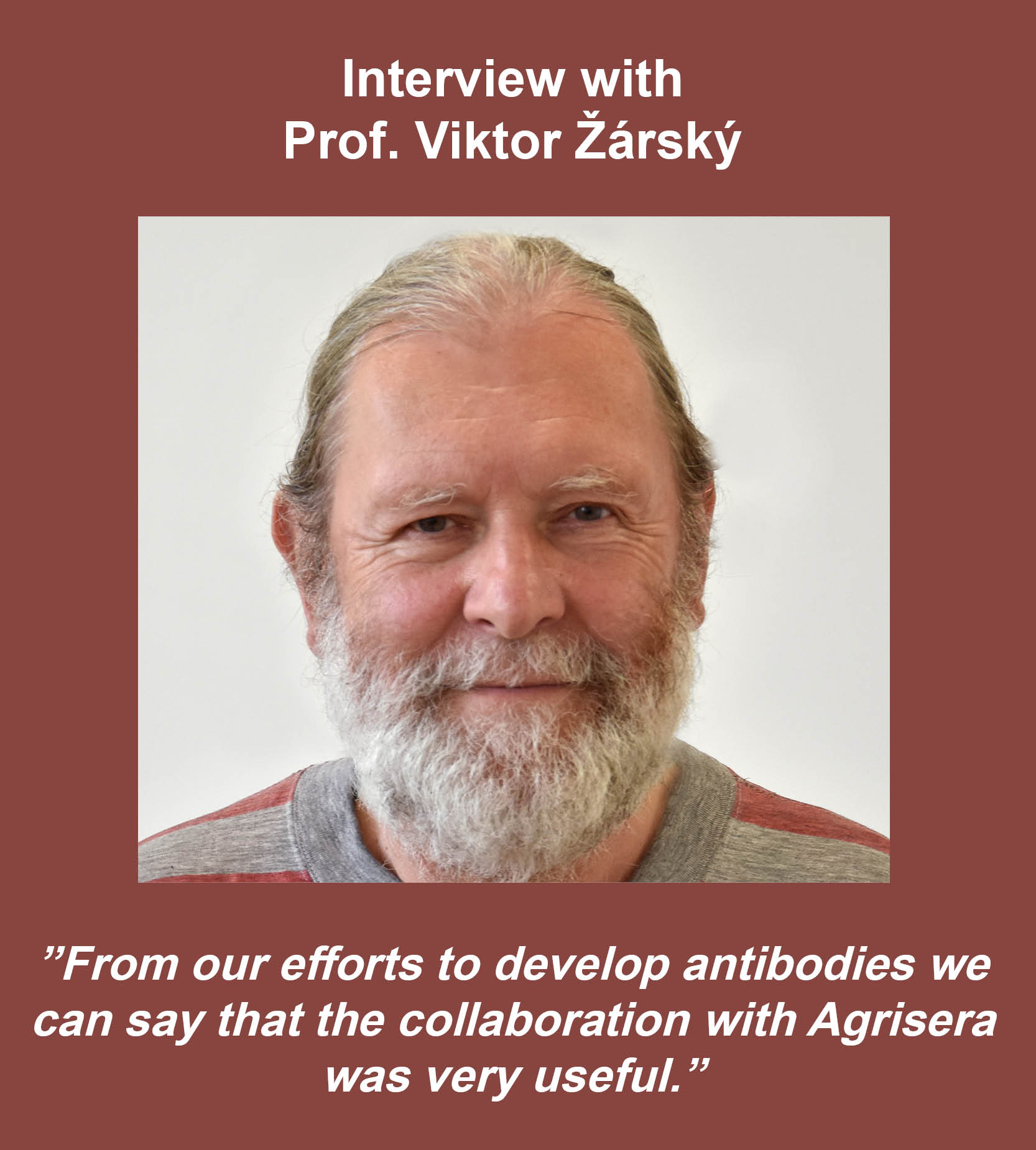
Charles University in Prague, Czech RepublicProf. Ru Zhang
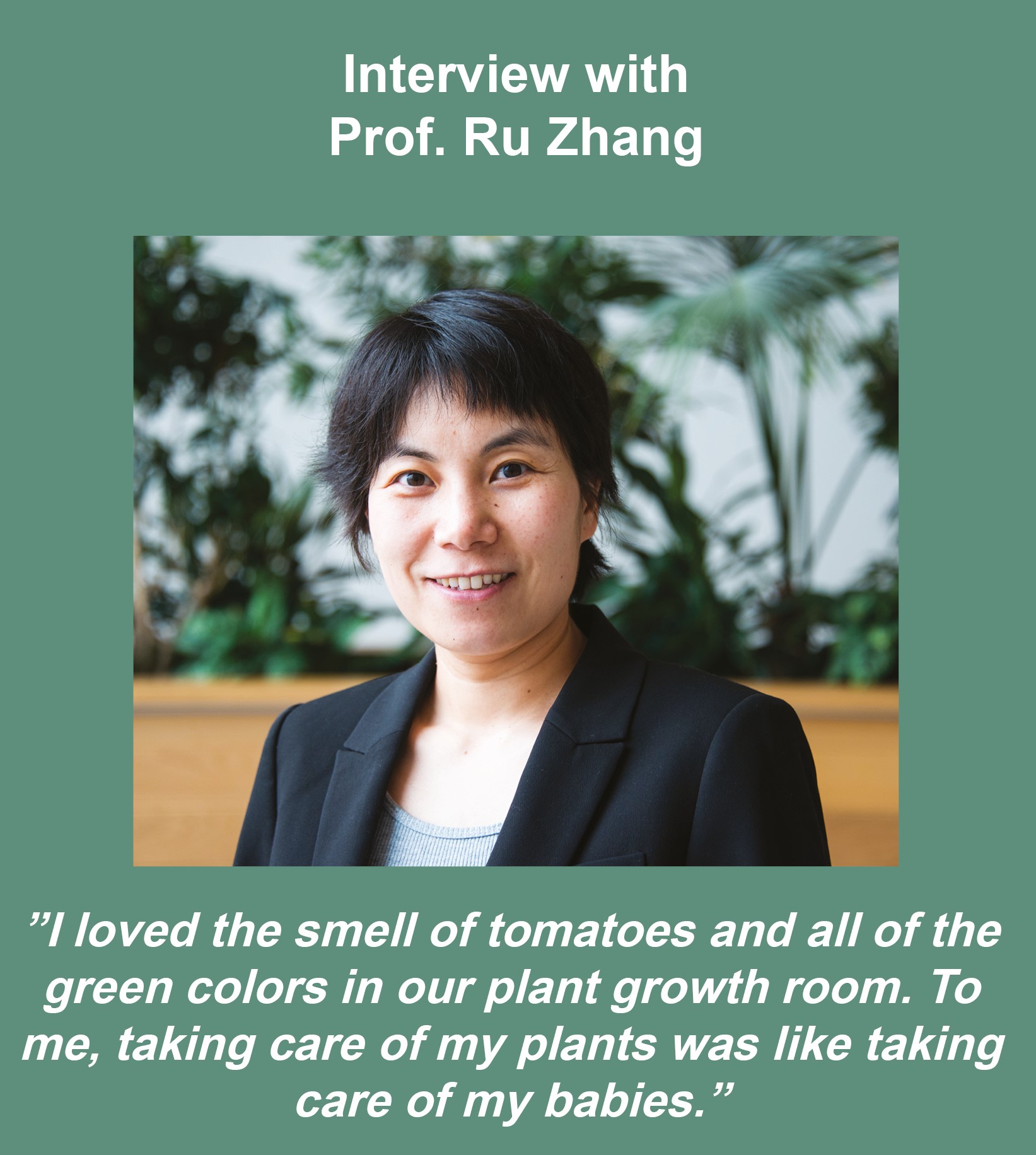
Donald Danforth Plant Science Center, USADr. Pushan Bag

University of Oxford, EnglandProf. Wolfgang Schröder
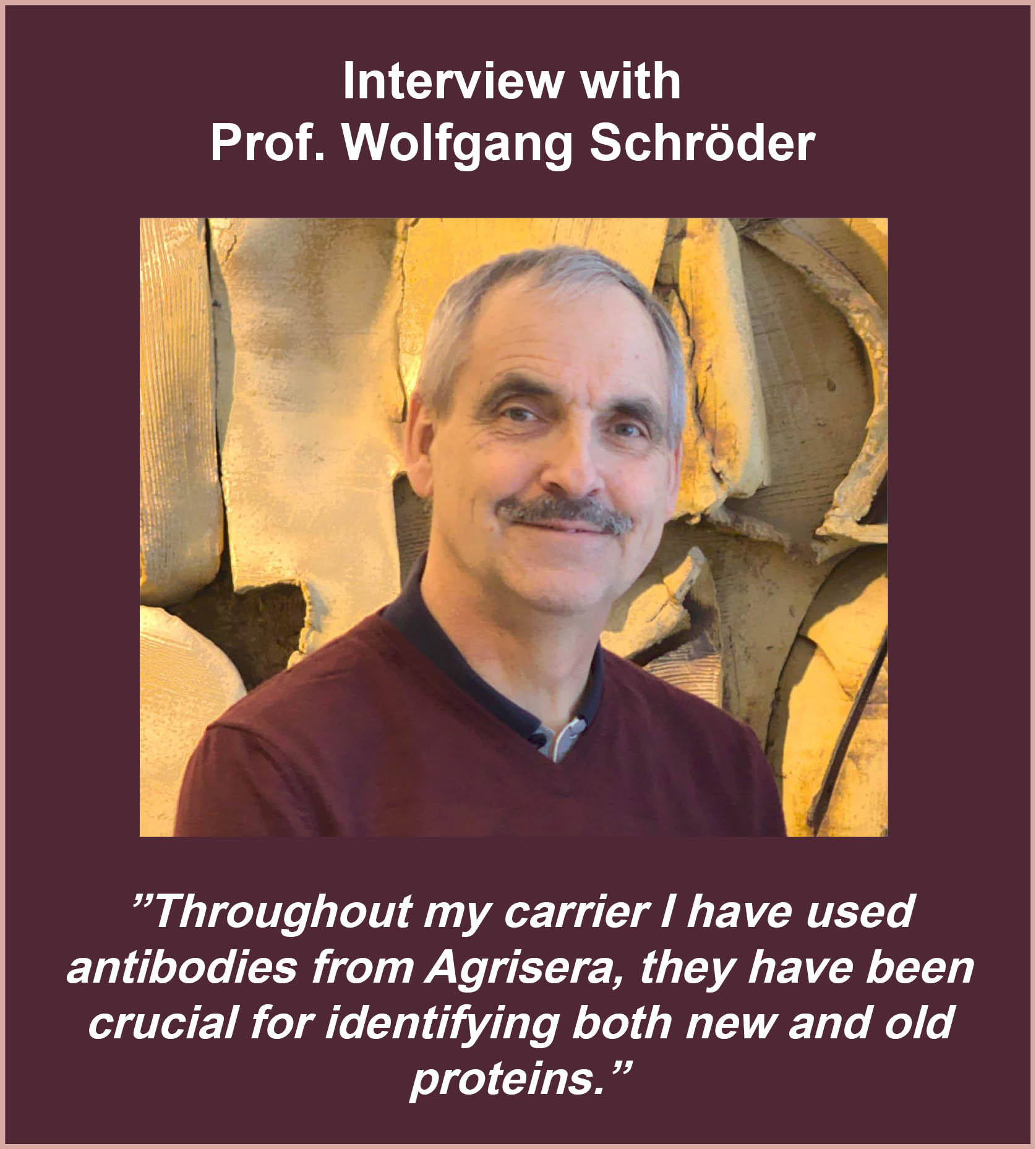
Umeå Plant Science Center (UPSC), SwedenProf. Alejandra A. Covarrubias
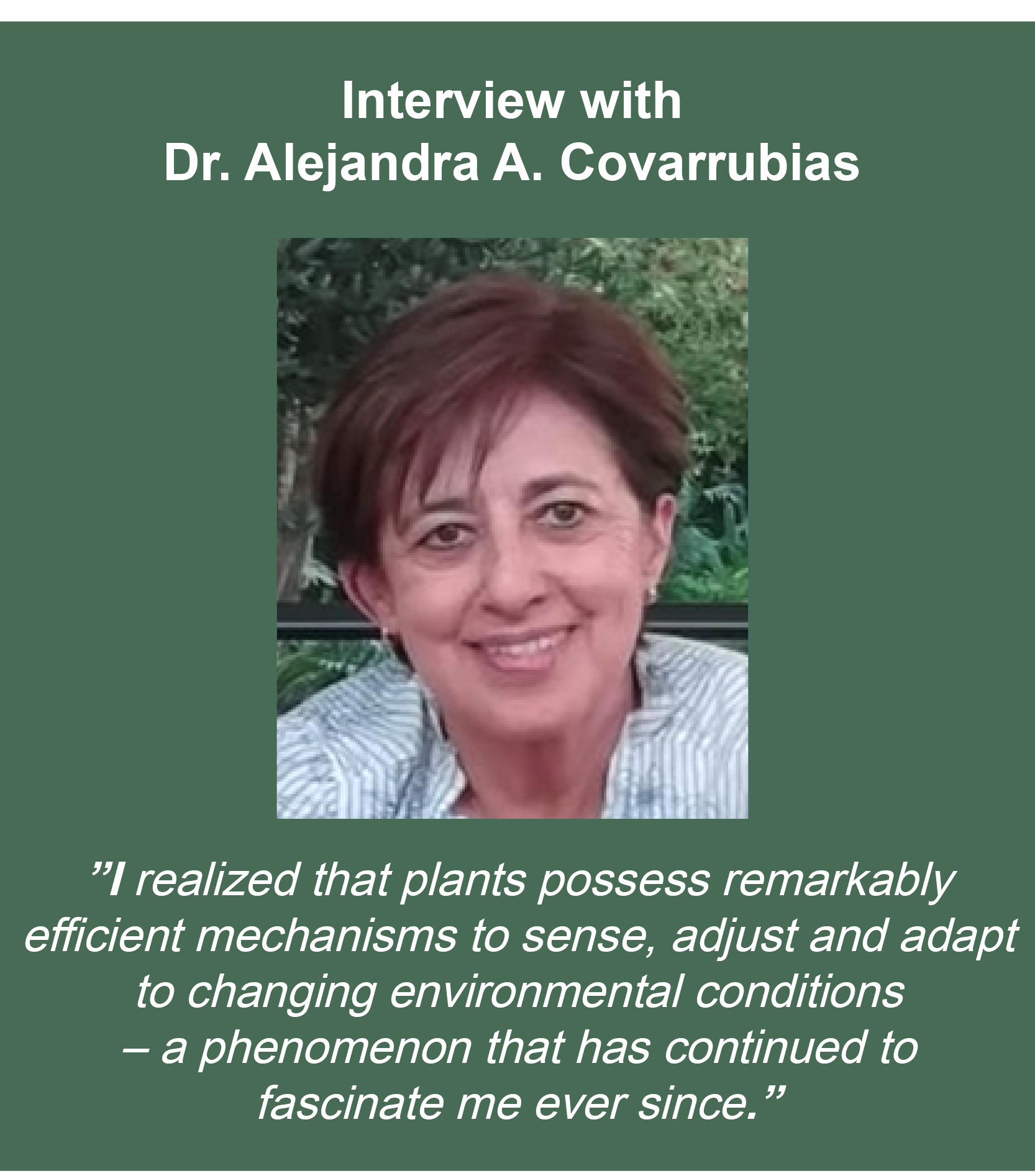
Universidad Nacional Autónoma de México, MexicoDr. Kirk J Czymmek
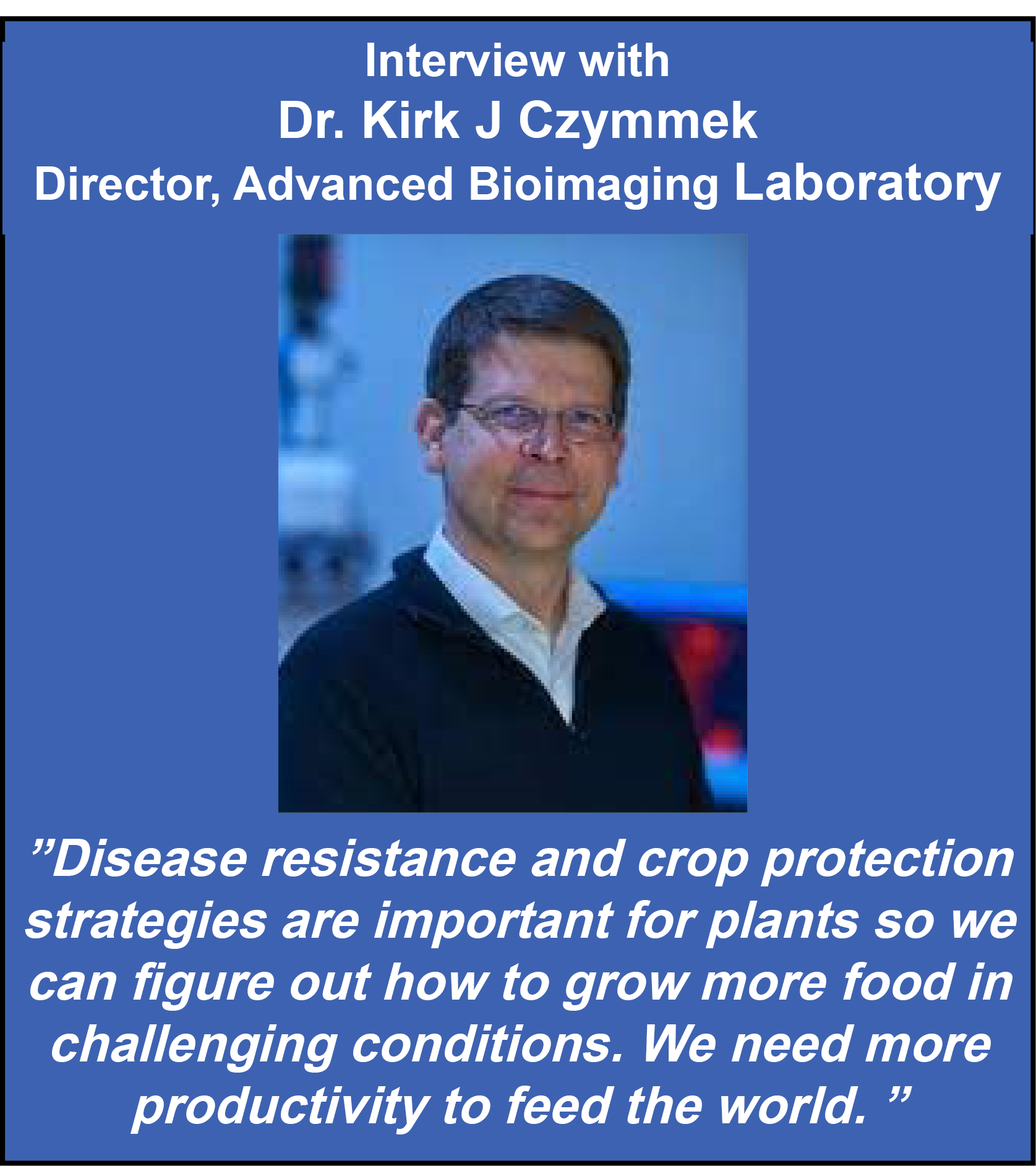
Donald Danforth Plant Science Center, USAAssoc. Prof. Alizée Malnoë
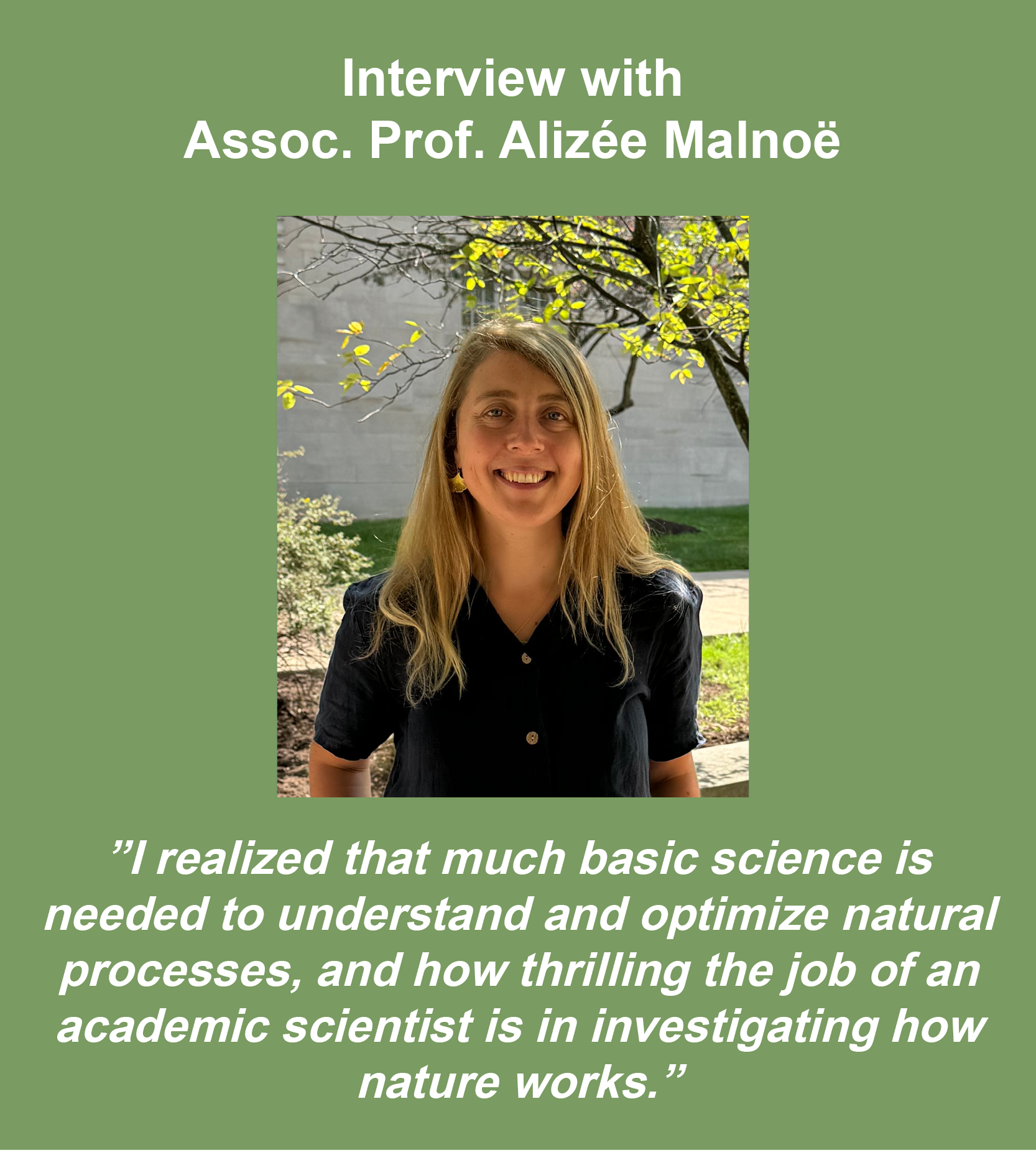
Indiana University Bloomington, USADr. Tatjana Kleine
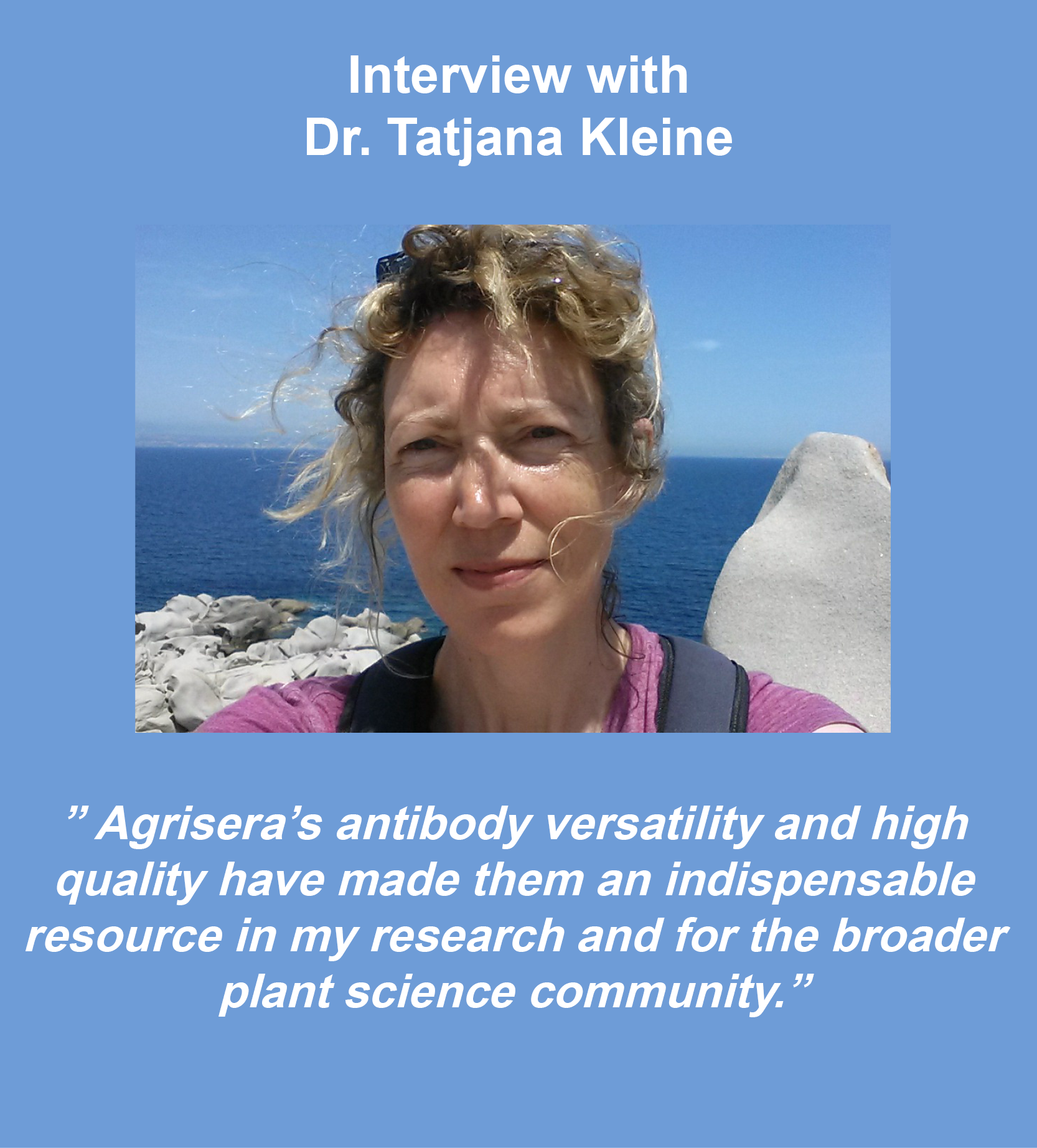
LMU Munich, GermanyProf. Simone Landi
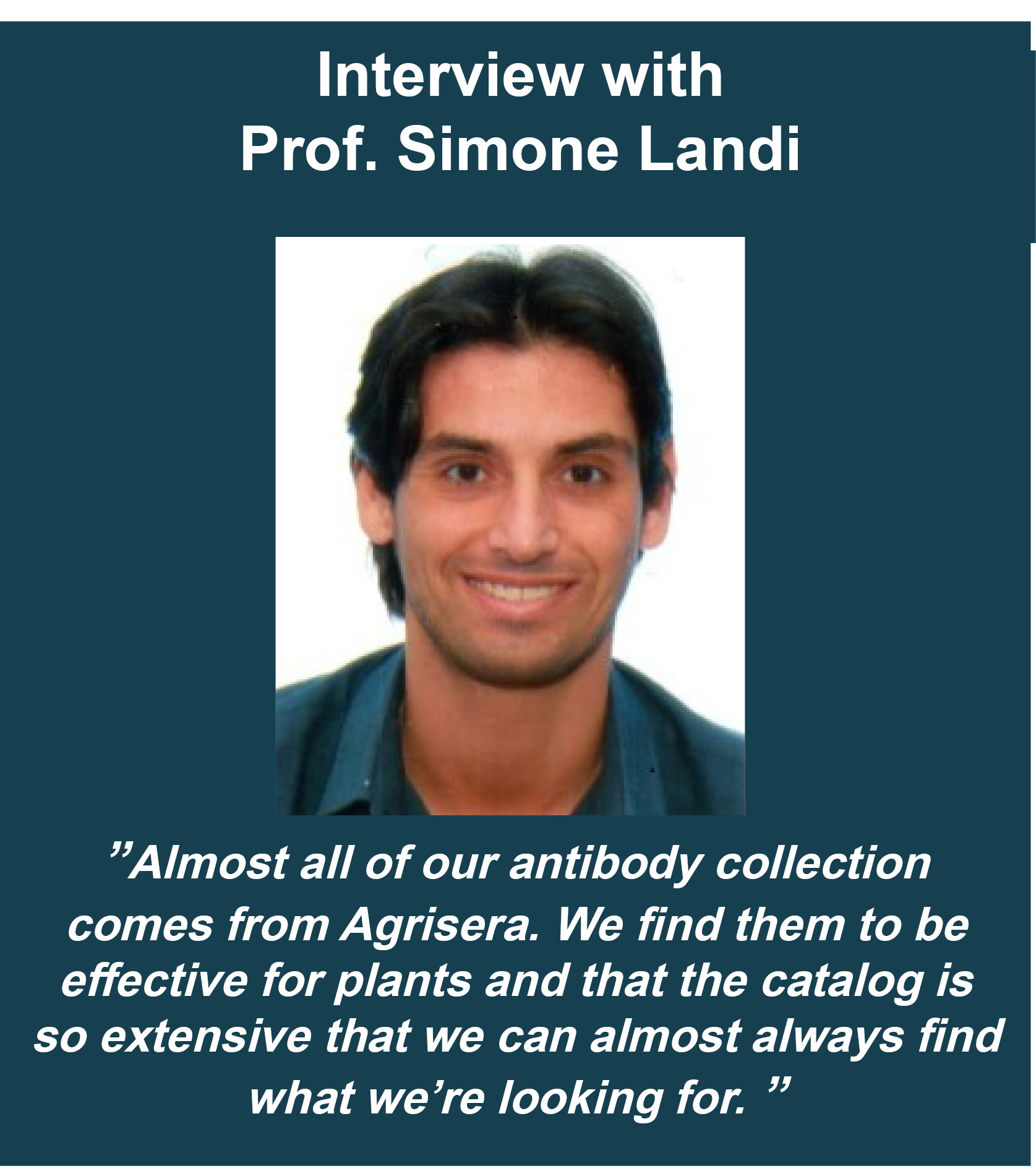
University of Naples Federico II, ItalyProf. Łucja Kowalewska

University of Warsaw, PolandAssistant Prof. Ivan Radin
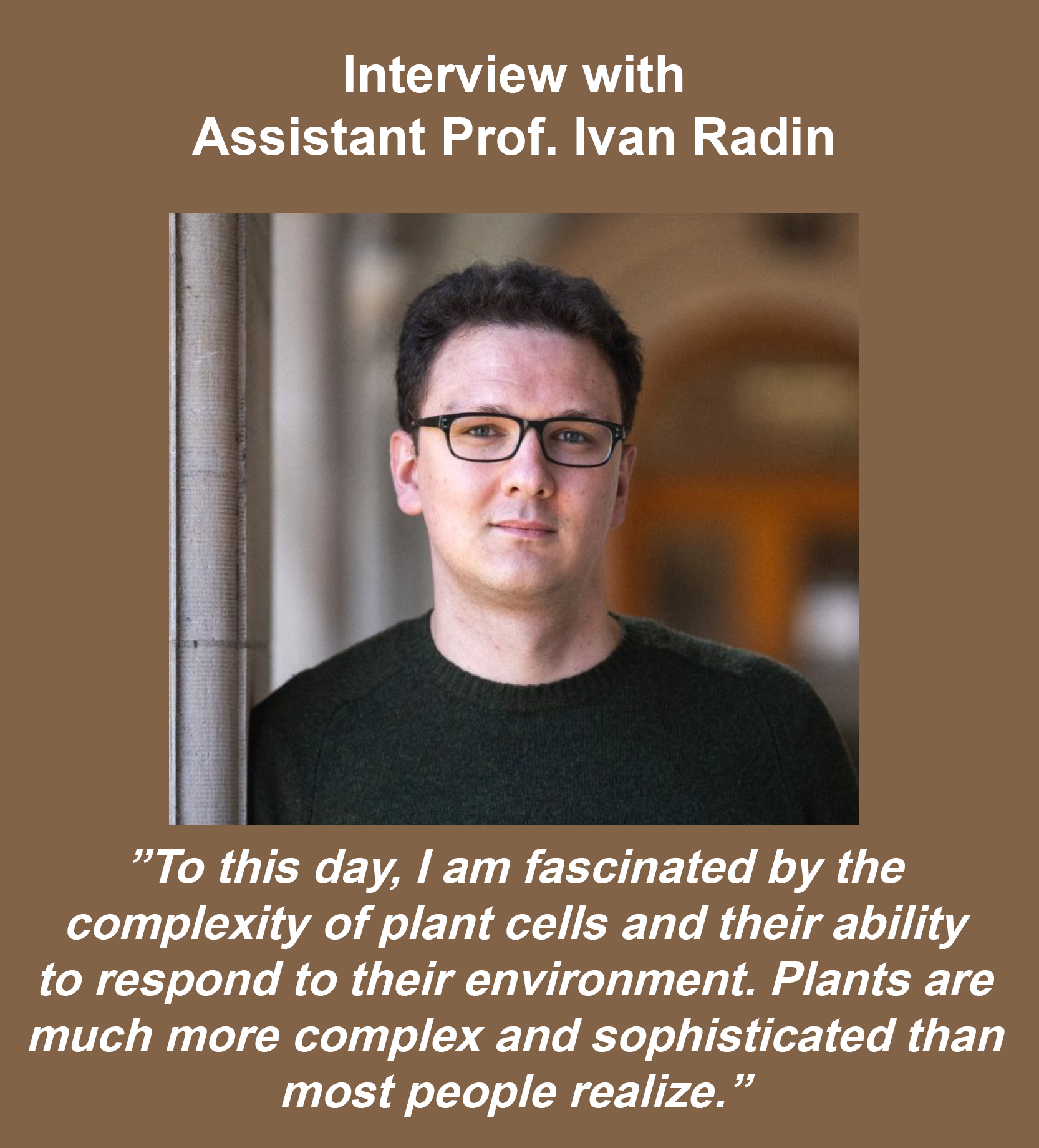
University of Minnesota, USAProf. Debabrata Laha

Indian Institute of Science (IISc), IndiaMore interviews to come!
• Agrisera catalog Q&As
History
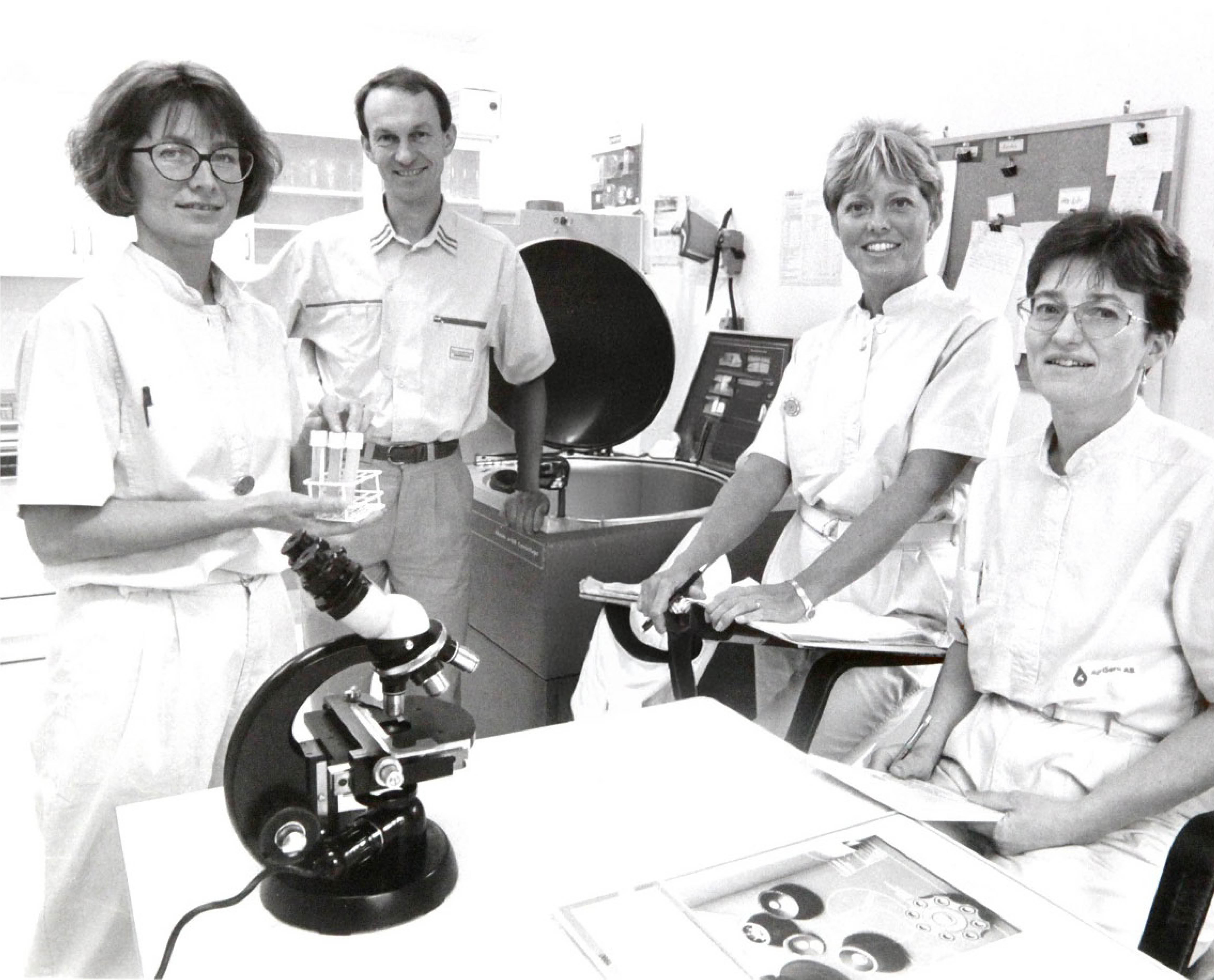
Greger Nordlund and Agrisera staff in the 1980s.
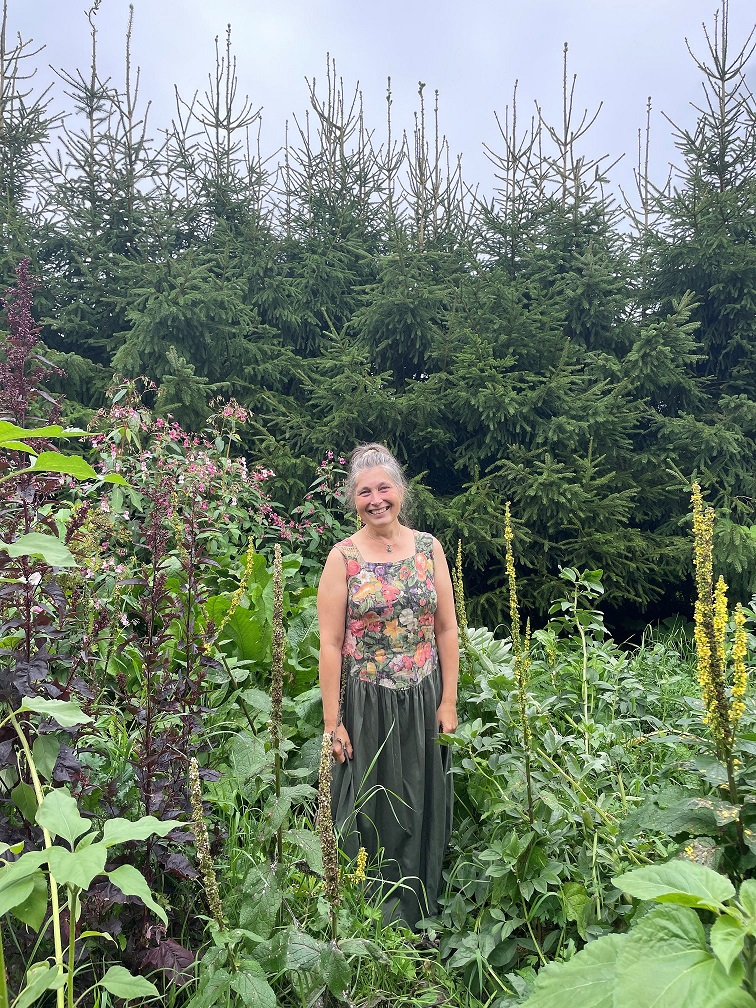

The Agrisera website in 2012.
Agrisera was awarded the 2019 CiteAb award Plant Science Antibody Supplier of the Year, for having the most antibody citations in research related to plant science. On average, Agrisera antibodies are cited in over 800 scientific articles per year. Our goal is to provide our customers with everything they need – from fast delivery of high-quality antibodies, to support in achieving successful results. In 2025, Agrisera was again awarded by CiteAb, as the Antibody Supplier Succeeding in Plant Science, for being the supplier with the most antibody citations against plant science proteins over the previous two year.
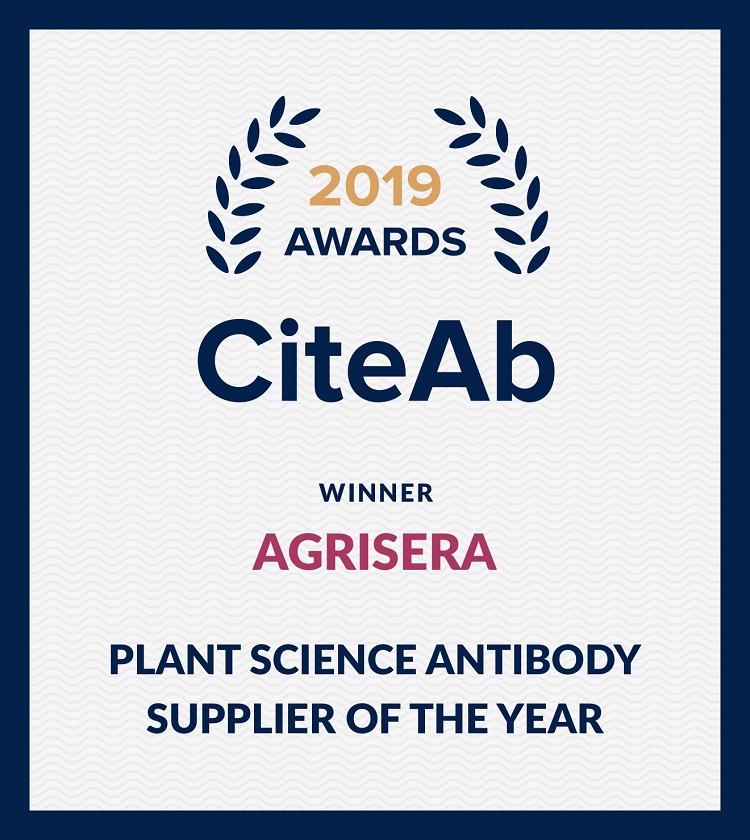
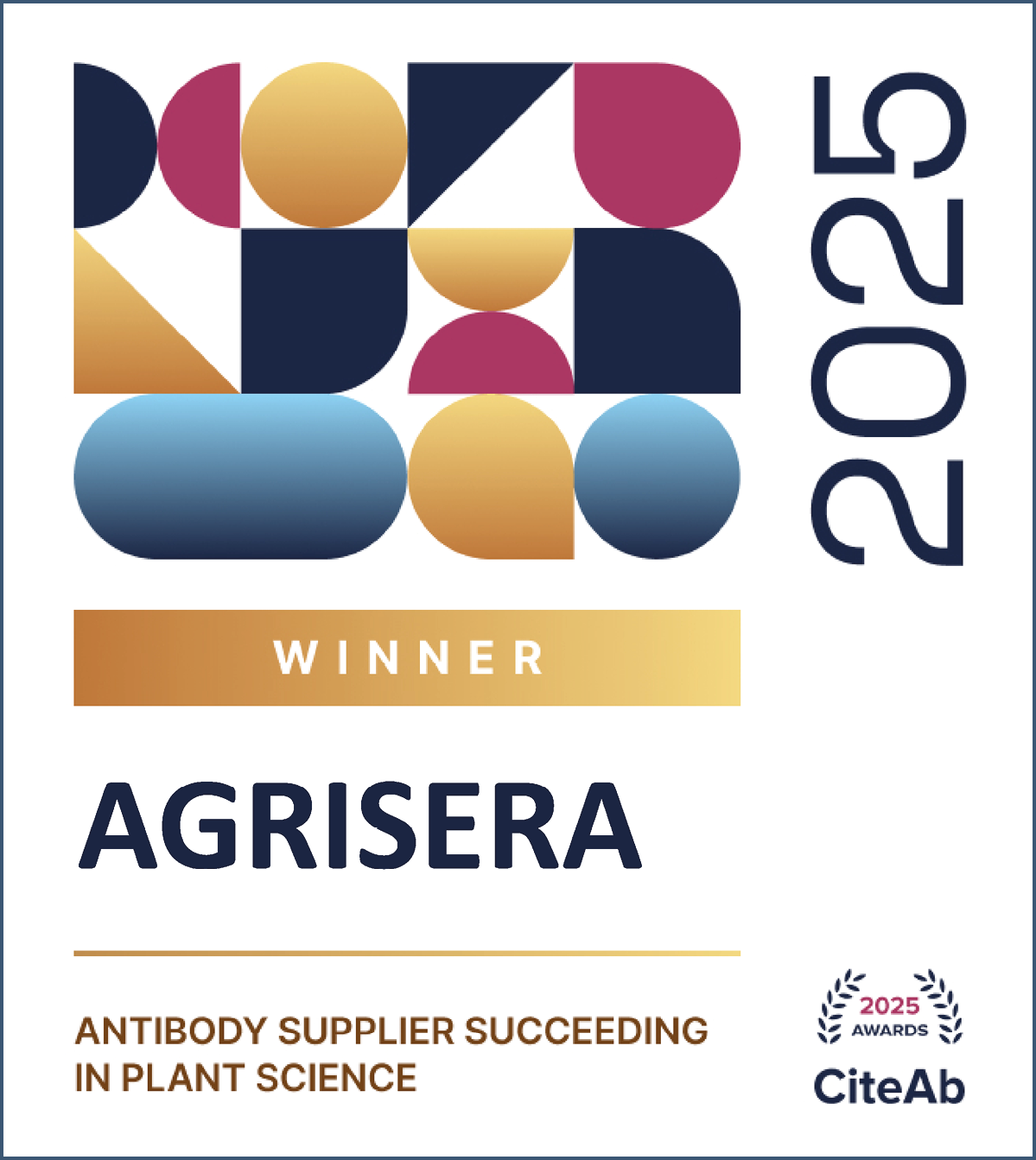
Plant Science Antibody Supplier of the Year, and Antibody Supplier Succeeding in Plant Science Awards.
In 2020, Agrisera was acquired by Olink Proteomics, the company behind the Proximity Extension Assay (PEA) technology, a powerful protein biomarker research tool widely used in academic and clinical research, as well as drug development. In July 2024, Olink was acquired by Thermo Fisher Scientific.
 Agrisera timeline.
Agrisera timeline.

Scientist Interviews
Click on the researchers' names below to read specific interviews, or scroll down to read them all.
Prof. Douglas Campbell

Dr. Douglas Campbell was a postdoctoral fellow at Umeå Plant Science Centre, in the group of Prof. Gunnar Öquist. He later held the position as Canada Research Chair in Phytoplankton Ecophysiology at Mount Allison University for over two decades, and is also Founder and Consulting Scientist at Environmental Proteomics NB. Agrisera has collaborated with Prof. Campbell over many years, including in the development of our collection of widely cited, so-called "global" antibodies.
- Please tell us about yourself and your research/institution.
Around 2004, Dr. Christopher Brown (currently U. Calgary), Dr. Amanda Cockshutt (currently St. Frances Xavier University), and I worked with Agrisera colleagues to launch Environmental Proteomics NB, which designs, produces and validates immuno-reagents for detecting proteins of environmental importance, across taxonomic lineages and habitats.
- What motivated you to get into plant science?
My family had a background in agriculture and gardening, and I enjoyed working with plants. Around 1992 I transitioned to working primarily on cyanobacteria, because at the time molecular tools were more accessible for bacteria, than for plants. I then worked on most of the major lineages of eukaryotic phytoplankton, usually on questions related to photosynthesis and stress.
- How have you used (Agrisera) antibodies in your research?
Starting in 2002, we collaborated with Agrisera to design, test and launch lines of "global" antibodies, and accompanying quantitation standards. There is vast taxonomic and functional diversity across phytoplankton and plant groups, but most of their core metabolic pathways include very highly conserved proteins. So antibodies directed against conserved peptide regions can be used to detect and quantify major indicator proteins on an even basis, across a wide range of target organisms, and even in total protein extracted from mixed environmental samples. This allowed a single antibody + standard pair to be more widely used, covering the economic and personnel costs, while providing protein detection systems to groups who could not justify the costs of organism-specific antibodies. My own group has used antibodies produced through Agrisera in dozens of publications on dozens of organisms and systems.
- Any further comments?
Meeting Dr. Joanna Porankiewicz-Asplund, and then Greger Nordlund, of Agrisera was transformative to my career. Their confidence in funding the initial production of Global Antibodies led to a long and fruitful collaboration, with the resulting antibodies and standards now cited in thousands of diverse publications from around the world. I am grateful to Agrisera.
Links
• Prof. Douglas Campbell, Mount Allison University
• Environmental Proteomics
• Agrisera Global Antibody Collection
Prof. Sabeeha Merchant

Dr. Sabeeha Merchant is a professor of plant biology at the University of California, Berkeley, with a focus on photosynthetic metabolism and metalloenzymes. In 2010, she led the team that successfully sequenced the genome of Chlamydomonas. Her achievements earned her election to the National Academy of Sciences in 2012, and her work has been recognized through several other awards and honors. Agrisera has enjoyed a long-standing collaboration with Prof. Merchant through the development of antibodies to various plant proteins.
- Please tell us about yourself and your research/institution.
I am a professor of biochemistry and have been since 1987, initially in the Chemistry and Biochemistry department at UCLA, which is where I initiated my interactions with Agrisera, and now at UC Berkeley in the Molecular and Cell Biology department and the Plant and Microbial Biology department. I had prepared many antibodies as a student and as a post-doctoral researcher. In those days, recombinant proteins were not really an option as antigens, so I used proteins purified from Chlamydomonas cultures. Fortunately, photosynthetic proteins are rather abundant and mg quantities of purified antigens could be prepared. Some of the antibodies I made (e.g. against CF1 or against plastocyanin) are available from Agrisera. We got so many requests for these antibodies that we decided it was easier to have Agrisera distribute them.
- What motivated you to get into plant science?
I did not enjoy working with animals, which I did for a short while (rat liver, rat and cow brain). Therefore, I considered microbes as an experimental system. I worked with Chlamydomonas, whose cultures smelled like freshly cut grass. Besides, the topic of photosynthesis was fascinating. What amazing biochemistry. And hence the commitment to plants.
- How have you used (Agrisera) antibodies in your research?
We identified various proteins involved in assembly of photosynthetic complexes and needed antibodies for localization experiments or to identify interacting partners by co-immunoprecipitation. We turned to Agrisera to produce custom antibodies. The antibodies against the cyclase (CHL27) were generated against the Arabidopsis protein but work for many different green organisms. In 2007 when we (with Arthur Grossman) used phylogenomics to generate an inventory of proteins that are exclusively found in chloroplast-containing organisms (or cyanobacteria), we collaborated with Agrisera to generate antibodies against so-called pioneer proteins (i.e. whose functions were not known).
- Any further comments?
We have enjoyed a most cordial relationship with Joanna and her team. They are responsive to their customers. At one meeting they gave me a T-shirt and an overshirt with their logo on it. I still have those shirts. I feel like a member of their team.
• Merchant Lab, UC Berkeley
• Sabeeha Merchant, Wikipedia
• Agrisera antibodies reactive in Chlamydomonas
Prof. Junpeng Zhan
- Please tell us about yourself and your research/institution.
My name is Junpeng Zhan, an Associate Professor in the College of Life Science and Technology, Huazhong Agricultural University, Wuhan, China. My current research focus is molecular mechanisms controlling protein content and quality in maize. I completed my PhD at the School of Plant Sciences, University of Arizona, where my research focused on transcriptional regulation of cell differentiation, and storage functions of the maize endosperm. I carried out my postdoctoral research at the Donald Danforth Plant Science Center, where I studied the biogenesis, functions, and evolution of reproductive phasiRNAs in maize and related species.
About Huazhong Agricultural University: Huazhong Agricultural University (HZAU), located in Wuhan, China, is renowned for its focus on agricultural sciences, forestry, and environmental studies. Established in 1898, HZAU has evolved into a key player in agricultural research and education, fostering innovation and sustainability. The university offers a diverse range of programs in fields such as crop production, animal science, and biotechnology, attracting students and researchers from around the globe. With its state-of-the-art facilities and vibrant campus life, HZAU is committed to addressing global challenges in food security and sustainable agriculture, making it an ideal choice for aspiring agricultural professionals seeking to make a positive impact.
- What motivated you to get into plant science?
Growing up in a small town surrounded by rice fields and vibrant vegetable gardens instilled in me a deep appreciation for the natural world and its intricate processes. My grandparents, dedicated farmers, not only taught me the value of hard work and perseverance but also sparked my curiosity about agriculture and the science behind it. This interest was further nurtured during high school when I became fascinated by Mendelian genetics. Learning about how traits are inherited in plants revealed the underlying beauty of nature and inspired me to pursue plant science.
- How have you used (Agrisera) antibodies in your research?
In my postdoctoral research, I had the opportunity to work in a small RNA-focused lab where we investigated the roles of Argonaute, Dicer-like, and RNA-dependent RNA polymerase (RDR) proteins in maize, rice, and other related crop species. Our collaboration with Agrisera was invaluable as we worked together to develop a range of antibodies targeting these crucial small RNA pathway proteins. Recently, we have begun testing our mutant materials using the antibodies developed by Agrisera, which has allowed us to gain deeper insights into the functional dynamics of these proteins in our research. This collaboration has significantly enhanced our ability to analyze and understand the molecular mechanisms underlying small RNA pathways. In my current research, I am starting a new collaboration with Agrisera to develop antibodies for seed storage proteins and their regulators in maize. These antibodies have the potential to help improve seed protein content and quality in economically important cereal crops.
- Any further comments?
It has been truly a pleasure working with Dr. Joanna Porankiewicz-Asplund and her colleagues at Agrisera. The antibodies that we collaborate to generate will be useful for plant biology research and help addressing the challenges in food security and sustainable agriculture.
Links
• Prof. Junpeng Zhan, Huazhong Agricultural University
• Agrisera antibodies to Plant RNA
Prof. Rebecca Roston
- Please tell us about yourself and your research/institution.
I am an Associate Professor in the Department of Biochemistry at the University of Nebraska-Lincoln. I lead a research team focusing on the molecular and biophysical mechanisms underpinning plant membrane adaptation to environmental stresses, particularly cold and freezing conditions. We investigate the dynamic processes of membrane lipid remodeling, protein interactions, and their roles in plant growth and photosynthetic efficiency. Using advanced microscopy, molecular biology, and biochemical techniques, our work spans model systems like Arabidopsis thaliana and diverse grasses to uncover conserved stress responses and improve plant resilience. Beyond research, I am committed to education and mentorship, teaching and advising the student and post-doc organization CROPS.
- What motivated you to get into plant science?
I had been doing research as an undergraduate in the Neurology department at UC Davis. Interviewing for graduate schools, I had an influential conversation with Dr. Steven Theg who said that if I was interested in activated membranes, I should be working on chloroplasts. I then rotated with two plant science labs, and the rest is history! The extreme flexibility in plant systems to approach a problem simultaneously using biophysics, biochemistry, molecular biology, and physiology was simply too attractive. In my opinion, plant research has the potential to answer questions more thoroughly than most other fields.
- How have you used (Agrisera) antibodies in your research?
Agrisera's verified plant antibodies have been absolutely essential throughout my career. As a graduate student with Kentaro Inoue, I used them to help me characterize fractions of the chloroplast, unequivocally locating my protein of interest for the first time in two of them. As a post-doctoral researcher with Christoph Benning, they were once again critical in identifying the right membrane fractions responsible for a variety of lipid biosynthetic functions. Finally, as a lab leader, they have been the trusted resource for all of our subcellular fractionation needs. I only ask for more of them!
Links
• Prof. Rebecca Roston, University of Nebraska-Lincoln
• Agrisera Compartment Marker Antibodies
• Agrisera antibodies to proteins involved in plant stress response
Prof. Martha Ludwig
- Please tell us about yourself and your research/institution.
I am a plant cell and molecular biologist with a focus on the evolution of C₄ photosynthesis. I did my PhD at McGill University in Montréal, Canada, on the evolution of some algal chloroplasts from eukaryotic endosymbionts. I then moved to Australia and did postdoctoral work on algal cell surface proteins, cyanobacterial CO₂ concentrating mechanisms, and C₄ photosynthesis evolution. I am currently at the University of Western Australia in Perth, Western Australia, in the School of Molecular Sciences.
- What motivated you to get into plant science?
I had a fantastic mentor for my final year Special Studies project, which looked at stress response proteins in pea, at Smith College, Northampton, MA, USA. He knew algal and land plant cell biology and made research both challenging and fun. I also grew up on a dairy farm, so knowing the land and the crops it would support were part of life.
- How have you used (Agrisera) antibodies in your research?
The work in my lab uses groups of plants with closely related species that do ancestral C₃ photosynthesis, the evolutionarily derived C₄ pathway, or forms of C₃-C₄ intermediate photosynthesis. We use Agrisera antibodies to label photosynthetic and photorespiratory proteins on leaf sections of these plants at the light and electron microscope levels. These studies allow us to identify changes in the inter- and intracellular location of the proteins in plants that represent the C₃ to C₄ evolutionary continuum.
- Any further comments?
It is a pleasure working with Agrisera! The team is responsive, supportive, and want to progress plant science.
Links
• Prof. Martha Ludwig, University of Western Australia
• Agrisera Antibodies to Photosynthetic Research
• Agrisera antibodies to proteins involved in plant stress response
Prof. Rossana Henriques
- Please tell us about yourself and your research/institution.
I'm interested in the regulation of plant growth, and how that connects to seasonal conditions. I.e. how plants measure time and use that information to control their growth patterns. More specifically, I study how plants use day length and temperature cues to modulates their growth and development responses. At University College Cork, where I've been for the last 7 years, we have continued the research I was previously conducting at the Centre for Research in Agricultural Genomics, examining how the TOR pathway regulates growth responses. Initially, we used Arabidopsis, but we are expanding the studies to include forage grasses and legumes.
We are studying how plants grow under short and long day conditions, and how that correlates with temperature. Considering that climate change is increasing the average temperature on Earth, leading to extreme events, like periods of drought or flooding, we have also done research assessing how a higher temperature, and some abiotic stress factors, impact growth responses. Beyond that, we are examining what happens with components of the TOR pathway when the environmental conditions are not optimal. Besides TOR, we have also done some work with long non-coding RNAs, which connects to both abiotic stress responses and developmental questions, like flowering time regulation.
- What motivated you to get into plant science?
My degree is in biology, but I knew that I wasn't going to be a zoologist or ecologist. I've always been more interested in molecular biology and biochemistry, but from a plant perspective. Many signaling pathways are well-studied and understood in animal research, but not in plant science. I've always been keen on trying to see how we could answer questions that were already well-established in animal research, using plants. So, developing new methodologies and setting up new strategies, to address e.g. how plant proteins accumulate. I find it very interesting how plants do things, and what the molecular mechanisms that underlie their responses are. From the plant's perception of what is going on, and how that translates into specific decisions at a cellular level, to how this impacts organs, and ultimately the organism itself. Plants are very plastic, and have many particular abilities. Any plant cell could be a stem cell, given the right conditions. This is something that has recently gained traction in animal research, while in plant research, we've been doing tissue culture, and making leaves into embryos since the '60-70s. Something I've always liked with plants, is the ability to work with different tissues and address a lot of different questions. There is also the fact that without plants, there really is no life on this planet. A lot of people don't realize how vital plants are to food security and our life.
- How have you used (Agrisera) antibodies in your research?
I've been collaborating with Agrisera for several years, and I think it's brilliant that there is a company that really provides researchers in plant science with appropriate tools. For a long time, I struggled with working with antibodies that were published in research for animals. All the Western blots, immunoprecipitations and data from animal publications looked brilliant, but when you tried to replicate it with plant material, many of those things didn't work. I was really happy when we started our collaboration and interaction with Agrisera. There was finally a company that really put their resources and efforts into working for the plant science community.
I am very grateful for Agrisera's strong collaboration with scientists, and in our specific case, the development of several antibodies for the TOR pathway. We wouldn't have been able to do the work we have done without your antibodies. It allowed us to do a lot of research in characterizing the TOR pathway. I think this is what makes Agrisera a special company, for me as a plant biologist.
I would also like to highlight the fact Agrisera is always interested in new antibody suggestions from the plant science community, and the fact that some of us can try the antibodies, validate them, and determine the best conditions for detection. It's very useful that you have the data from researchers, with whom you've collaborated, presented on your website. You show the actual Western blots, and the conditions for them. I really appreciate that this allows others to follow all the instructions on how to use your antibodies.
To me, another important aspect is that cross-reactivity is specified for your antibodies. Arabidopsis has been very good to us, in terms of a model species, allowing us to ask a lot of questions, and develop common tools. But with broad antibody species reactivity, we can allow ourselves to ask other questions, and move on to other species, connected to food security.
Links
• Prof. Rossana Henriques, University College Cork
• Agrisera antibodies to proteins involved in Plant Signal Transduction
• Agrisera antibodies to proteins involved in environmental stress response
Prof. Eiji Nambara
- Please tell us about yourself and your research/institution.
I am a professor in the department of Cell and Systems Biology, at the University of Toronto. My lab has studied the role of ABA catabolism in seed maturation, dormancy, and germination, including the first identification of CYP707As as ABA 8'-hydroxylase genes. We also found that environmental changes, such as nitrate and humidity, alter the expression of ABA catabolism genes as primary responses. My interest in studying ABA began with my MSc supervisor, Prof. Peter McCourt. The continuation of this topic was influenced by Dr. Yuji Kamiya, a group director at the RIKEN Plant Science Center, where I had my first lab. I believe ABA is fascinating because it acts as a mobile signal to manage water relations in plants. A benefit of studying plant hormones is the fact that multidisciplinary skills, such as those in chemistry and biology, are required.
- What motivated you to get into plant science?
I studied organic chemistry as an undergraduate student at Nagoya University, Japan. The lab I was part of focused on organic reactions that mimic biological systems. I was fascinated by the elegant organization of metabolic systems in organisms. The diverse metabolites produced by plants attracted me to move into plant biology.
- How have you used (Agrisera) antibodies in your research?
Yes, my PhD student Ben has used Agrisera’s antibodies against AtABA2 that encodes xanthoxin dehydrogenase in ABA biosynthesis.
- Any further comments?
My first interaction with Agrisera was in 2016 when they kindly supported the International Plant Growth Substances Association (IPGSA) meeting in Toronto.
Links
• Prof. Eiji Nambara, Univeristy of Toronto
• Agrisera antibodies to plant hormones
Dr. Heni Hitaj
- Please tell us about yourself and your research/institution.
My name is Heni Hitaj and I am doing my PhD at the Freie University in Berlin, specializing in antioxidative defense systems in plants. My research focuses on unraveling the mechanisms by which plants mitigate photooxidative stress caused by reactive oxygen species (ROS) in chloroplasts. Understanding these processes is crucial for optimizing plant stress responses and improving resilience to environmental fluctuations. We aim to provide a comprehensive understanding of thylakoid membrane dynamics and the regulatory role of tAPX, shedding light on how plants fine-tune their antioxidant defenses against photooxidative damage.
- What motivated you to get into plant science?
Being an up-and-comer from the new generation of plant scientists, I am acutely aware of the urgent challenges our crops face today. Climate change, extreme weather, and environmental stressors are no longer distant threats—they are happening right now, impacting global food security and pushing plants to their limits. Seeing these issues unfold, I knew I wanted to make a difference and be part of the solution. I’ve always been fascinated by how plants, despite being rooted in place, have evolved sophisticated defense mechanisms to survive harsh conditions. Unlike animals, they can’t escape threats—they must adapt. This resilience, especially in response to oxidative stress and reactive oxygen species (ROS), inspired me to focus my research on antioxidative defense systems. If we can better understand how plants protect themselves at the cellular level, we can engineer stronger, more resilient crops capable of withstanding the unpredictable climate.
- How have you used (Agrisera) antibodies in your research?
I use Agrisera antibodies routinely in my current research projects to characterize the dynamics of new protein candidates, particularly in understanding their abundance, localization, and interactions. For example, I apply these antibodies in Co-Immunoprecipitation (Co-IP) experiments to identify potential interaction partners of key proteins involved in oxidative stress regulation. Across all the different research groups I’ve been a part of, Agrisera has become a household name for antibody selection. Whenever I’m designing an experiment, I always check if Agrisera has a relevant antibody before considering alternatives. Their products have become my go-to choice for high-quality, dependable reagents.
- Any further comments?
It is always a pleasure meeting Joanna at conferences. I have always been a fan of Agrisera, and having the opportunity to speak with her gave me valuable insight into how the company operates and the passion that goes into developing high-quality antibodies. It’s inspiring to see the dedication behind the products that so many researchers, including myself, rely on for our work.
Links
• Baier Group, Freie Universität Berlin
• Agrisera antibodies to environmental stress
Prof. Blake Meyers
- Please tell us about yourself and your research/institution.
I am Blake Meyers, a plant biologist specializing in small RNAs and their roles in gene regulation, particularly in reproductive development and anther development. My research focuses on small RNA biology, recently including the biogenesis and functions of phased, secondary siRNAs (phasiRNAs). I am at the University of California, Davis, where I am the Director of the Genome Center, a multidisciplinary institute of 18 faculty members that share a common interest in genomic technologies and the application of these methods to diverse biological questions, including biomedicine, microbiology, bioinformatics, and plants. I am a faculty member in the Department of Plant Sciences. In my group, I have a talented team of researchers who are working to explore the molecular mechanisms, evolution, and diversity of plant RNAs, particularly small RNAs — and to identify applications of these discoveries to real world problems in crop plants.
- What motivated you to get into plant science?
My interest in plant science started through a love of plants, but grew further out of a fascination for genetics and molecular biology. I was especially drawn to the complexity and elegance of plant regulatory networks and the ways these are encoded in the genome. Plants offer unique insights into gene silencing, epigenetics, and small RNA biology — areas that remain at the forefront of my research today. The potential for discovery in plant science is immense, and its impact from agriculture to biotechnology, makes it an incredibly rewarding field.
- How have you used (Agrisera) antibodies in your research?
Agrisera antibodies have been instrumental in our studies on ARGONAUTE (AGO) proteins, which are key components of small RNA pathways. These proteins are the effectors of guide RNAs, much like the Cas proteins of the better known CRISPR system. The AGO antibodies allowed us to track the expression, localization, and interactions of AGO proteins in different plant tissues, helping to uncover their diverse functions in small RNA-guided gene regulation. Beyond AGO research, Agrisera’s commitment to high-quality plant antibodies has been a valuable resource for the plant biology community.
- Any further comments?
I appreciate Agrisera’s dedication to supporting plant research over the past 40 years. Their plant-specific antibodies and educational resources, such as the two posters that we collaborated on, have helped advance research and training for scientists worldwide. It’s exciting to see how these tools continue to contribute to new discoveries in plant molecular biology!
Links
__________________________
Prof. Govindjee
- Please tell us about yourself and your research/institution.
I started my research life in 1954 at the University of Allahabad, India, working on the effects of virus infection on the amino acid metabolism of many plants including tobacco. However, after receiving my PhD (in Biophysics) in 1960, from the University of Illinois at Urbana- Champaign (UIUC), I have focused on Oxygenic Photosynthesis, especially the molecular mechanism of the electron flow from water to nicotinamide adenine dinucleotide phosphate (NADP+), working as an Assistant Professor (1961-1965), an Associate Professor (1965- 1969), a Professor (1969-1999), and then as Professor Emeritus of Plant Biology, Biochemistry and Biophysics, starting in 1999, also at the UIUC. My interaction with Agrisera began (and continues) through discussions on the many wonderful educational posters (https://www.agrisera.com/en/educational-posters).
- What motivated you to get into plant science?
My interest in plants began when I was in the 4th class – through my teacher in what was called ‘Nature study’. Further, during my college days, I detested the idea of ‘dissecting’ animals, but I loved examining plants and their leaves and examining them under microscopes. When I came to the UIUC in 1956, as a graduate student, I began culturing the green alga Chlorella pyrenoidosa, the red alga Porphyridium cruentum, and the cyanobacterium Anacystis nidulans.
Further, I was fascinated with the controversy of the minimum quantum requirement of 3-4 photons (by the Noble laureate Otto Warburg) per oxygen versus 8-12 by the others including my first mentor on ‘Photosynthesis’ Robert Emerson. And, yes, the topic of ‘Primary Photochemistry and Biophysics’ -- from femto-seconds to kilo-seconds- became my life-work – after I interacted with my second – but most influential mentor Eugene Rabinowitch. And hence the commitment to oxygenic photosynthesis at all levels.
- How have you used (Agrisera) antibodies in your research?
Personally, I have not used Agrisera antibodies in my research, but I have been deeply involved in providing detailed information to Agrisera for making educational posters on Oxygenic Photosynthesis (2016), Vertical Z-Scheme (2018), Photosynthesis and Respiration (2019) and Rubisco (2020); these may be accessed at https://www.agrisera.com/en/info/educational-posters.html.
- Any further comments?
I have always enjoyed a wonderful, friendly relationship with Joanna and her team – in person as well as through e-mails and phone conversations. I wish Agrisera the best in all their future endeavors.
Links
• Honoring Govindjee, celebrating 90 years
• Prof. Govindjee - Wikipedia
• Agrisera's Educational Posters
• Agrisera Antibodies to Photosynthetic Research
Prof. Emilio Gutiérrez
- Please tell us about yourself and your research/institution.
I am a group leader at the Plant Biology and Biochemistry institute, a Joint Centre of the University of Seville (USE) and the Spanish National Research Council (CSIC). The IBVF is specialized in the study of phototrophic biology in a broad sense, with the distinctive feature of developing research with all types of oxygenic photosynthetic organisms: cyanobacteria, algae and plants. The research of my group is focused on the understanding the key role stress granules (SGs) in plant stress response. SGs are phase-separated bimolecular condensates formed by proteins and mRNAs assembled in response to stress. The formation of SGs minimizes stress-related damage and promotes cell survival, although the molecular mechanisms underlying pro-survival effects of SGs remain to be established. In contrast to the prominence of research on stress granule in animal and yeast models, in plants, SGs have only received limited attention. Our goal is to establish a profound conceptual and experimental framework allowing us to understand the molecular pathways underlying formation of SGs in plants, which will be used as a basis to finally demonstrate how the formation of these condensates promotes stress resistance and cell survival in plants.
- What motivated you to get into plant science?
Since I was a child, I have been fascinated by the plant world. I am curious to learn how a sessile organism can perceive, respond to, and defend itself against external stimuli, adapting to an increasingly hostile environment. This curiosity drives me to explore the intricate mechanisms that allow plants to survive and thrive despite the challenges they face. Understanding their resilience not only deepens my admiration for them but also fuels my passion for research.
- How have you used (Agrisera) antibodies in your research?
Agrisera is making a significant contribution for the plant science community by developing a wide range of antibodies targeting plant proteins. Protein detection by antibodies is a crucial tool for advancing scientific research. Before Agrisera, there was no company dedicated exclusively to the development of antibodies against plant proteins, filling a vital gap in the field.
Links
• Prof. Emilio Gutiérrez
• Prof. Emilio Gutiérrez’s research group
• Agrisera antibodies to proteins involved in plant stress response
Prof. Andreas Hiltbrunner
- Please tell us about yourself and your research/institution.
During my PhD at ETH Zurich, I investigated the molecular mechanisms of protein import into chloroplasts. For my postdoc, I then moved to the University of Freiburg, Germany, where I became interested in how plants sense the light environment and how phytochromes, an important class of photoreceptors in plants, are involved in this process. When I started my own lab as an independent group leader at the Centre for Plant Molecular Biology (ZMBP), University of Tübingen, Germany, I continued working on light signalling and phytochromes, and also began investigating how phytochromes and light signalling evolved in land plants. Since 2012, I have been Professor of Molecular Plant Physiology at the University of Freiburg, Germany, where I have continued to focus on understanding how phytochromes function at the molecular level, how downstream signalling pathways link light activation of phytochromes to changes in gene expression, and how the evolution of light signalling enabled plants to colonise land.
- What motivated you to get into plant science?
I have always been fascinated by plants, and from the beginning of my studies, it was clear to me that I wanted to work with plants. Plants feed the world, and it is therefore essential that we understand how they respond to changes in the environment, including those driven by climate change, if we are to ensure sustainable agricultural production in the future. However, the projects in our lab fall within the field of basic research, and I feel very privileged to have the freedom to investigate questions that are driven by curiosity and may not have an immediate application. Yet, applied research relies on discoveries made in basic science, and I am confident that understanding the fundamental principles of phytochrome action in model plants such as the seed plant Arabidopsis thaliana or the moss Physcomitrium patens will eventually contribute to practical applications.
- How have you used (Agrisera) antibodies in your research?
Antibodies to detect phytochromes (phy) and proteins involved in phytochrome downstream signalling are essential tools in our research (e.g. for immunoblotting or Co-IP). When our stocks of custom-made antibodies against phyA and phyB, the two primary phytochromes in seed plants, were used up, we needed to find a replacement. Fortunately, antibodies specific to phyA and phyB provided by Agrisera reliably detected the respective phytochromes. This resolved our issue, and we are grateful for this valuable resource. In addition, we are using several Agrisera antibodies against factors in involved in light signalling for immunoblotting.
- Any further comments?
We have tested several antibodies provided by Agrisera, and I really appreciate that – unlike many other companies – Agrisera actively invests in plant research. After several years of email communication, I finally met Joanna in person at a conference last year, which I greatly enjoyed. We were also glad to have Agrisera’s support for a conference at our institute this year, including the generous donation of a free antibody as a poster prize. Tack så mycket!
Links
• Prof. Andreas Hiltbrunner
• Prof. Andreas Hiltbrunner's research group
• Agrisera antibodies to proteins involved in light acclimation
Prof. Viktor Žárský
- Please tell us about yourself and your research/institution.
I established the Laboratory of cell biology at the Institute of experimental botany, Czech academy of sciences and am at the same time professor at the Department of experimental plant Biology, Charles University in Prague. My research focuses on the biology of plant cell polarity and morphogenesis/development regulated by small GTPases and their effectors in the endomembrane system, especially vesicle tethering complex exocyst and early land plants evolution.
- What motivated you to get into plant science?
As a child I was fascinated by microscopy and as a high school student I got interested in algae - so that algology was my entry point into plant cell and developmental biology.
- How have you used (Agrisera) antibodies in your research?
In our research we do not only use Agrisera antibodies, but in collaboration with Agrisera we successfully developed two antibodies against core exocyst complex subunits. From our efforts to develop antibodies we can say that the collaboration with Agrisera was very useful.
Links
• Prof. Viktor Žárský
• Prof. Viktor Žárský's lab
• Agrisera antibodies - Plant developmental biology
• Agrisera antibodies - Membrane Transport System
Prof. Ru Zhang
- Please tell us about yourself and your research/institution.
I am an Associate Member and Principal Investigator at the Donald Danforth Plant Science Center in St. Louis, Missouri, USA. My lab studies how photosynthetic cells respond to abiotic stresses, especially high temperatures, by using both green algae (mainly Chlamydomonas reinhardtii) and land plants (mainly Setaria viridis) as models. Global warming increases the frequency, intensity, and duration of high temperatures, which impair plant growth and reduce crop yield. To engineer crops with improved thermotolerance, it is imperative to understand how photosynthetic cells sense and respond to high temperatures. Many pathways in plants can be affected by high temperatures, and we focus on photosynthesis, a key driver for plant growth and food production but one of the most heat-sensitive functions in plants.
During my PhD training at the University of Wisconsin-Madison, I worked with Dr. Thomas Sharkey studying the effects of high temperature on photosynthesis in leaves of Arabidopsis and tobacco plants. During my postdoctoral training with Dr. Martin Jonikas and Dr. Arthur Grossman at the Carnegie Institution for Science, Stanford, I continued to investigate photosynthesis by developing high-throughput genotyping and quantitative phenotyping tools in the eukaryotic, unicellular green alga Chlamydomonas reinhardtii to identify photosynthesis-deficient algal mutants on a genome-wide scale. In October 2016, I started my own lab at the Donald Danforth Plant Science Center.
Founded in 1998, the Donald Danforth Plant Science Center is a nonprofit research institute with a mission to improve the human condition through plant science. Research, education and outreach aim to have an impact at the nexus of food security and the environment, and position the St. Louis region as a world center for plant science. The Center’s work is funded through competitive grants from many sources, including the National Science Foundation, National Institutes of Health, U.S. Department of Energy, the Gates Foundation and through the support of individuals and corporations. Learn more at danforthcenter.org.
- What motivated you to get into plant science?
I feel very happy when I am around plants, starting at a young age. As an undergraduate researcher in Dr. Ningning Wang’s lab at Nankai University in China, I participated in the generation of transgenic micro tomatoes with improved nitrogen uptake efficiency. I loved the smell of tomatoes and all of the green colors in our plant growth room. To me, taking care of my plants was like taking care of my babies. I called the plants I grew my “tomato babies”. It was fascinating to see my transgenic micro tomato plants having improved resistance to low nitrogen. Pursuing plant science quickly became a clear path for me.
- How have you used (Agrisera) antibodies in your research?
We use Agrisera antibodies frequently, mostly proteins involved in photosynthesis or chloroplast biology.
- Any further comments?
Agrisera is not only a great company that produces high quality antibodies but also closely integrates into the plant science communities. My office has several photosynthesis-related graphs supported by Agrisera. Dr. Joanna Porankiewicz-Asplund is outstanding and patient in answering many questions from us about western troubleshooting and Agrisera antibodies. Joanna also led a great online workshop about western at our institution. Thanks a lot, Joanna! Agrisera, Happy 40th Anniversary!
Links
• Prof. Ru Zhang
• Zhang lab at Danforth
• Agrisera antibodies to proteins involved in environmental stress response
• Agrisera Antibodies to Photosynthetic Research
__________________________
Dr. Pushan Bag
- Please tell us about yourself and your research/institution.
My name is Pushan Bag, and I’m a Human Frontiers Science Program research fellow at the Department of Biology, University of Oxford. I work in Prof. Paul Jarvis’s lab, in the field of chloroplast protein transport. My current research focuses on how proteins are imported into chloroplasts, particularly how this process changes during different developmental stages. I'm especially interested in the structural biology of these transport machineries. The long-term goal is to engineer the protein transport machinery to influence plant development, which could have significant implications for improving crop performance.
Since protein transport into chloroplasts is heavily light-dependent, it’s clear that this process is directly or indirectly regulated by photosynthesis. During my PhD, I worked extensively on photosynthesis, which gave me a strong foundation in chloroplast energy metabolism. Now, I aim to integrate that expertise with my current work to explore how chloroplast energy status and redox metabolism influence—and are influenced by—organelle biogenesis and development. Ultimately, I hope to build a unified understanding of how chloroplasts function and adapt under different environmental and developmental conditions.
This field is also incredibly fascinating from an evolutionary perspective. Chloroplast protein transport is believed to have evolved from ancient bacterial toxin ejection systems. As life on Earth progressed from unicellular to multicellular organisms and eventually to higher plants, these primitive systems were repurposed—from ejecting toxins to importing proteins. One hypothesis is that, following the endosymbiotic origin of chloroplasts from cyanobacteria, most of the endosymbiont’s genes were transferred to the host nucleus, which then forced the evolution of a protein import system from what was originally an ejection system. But we don’t yet know exactly how this transition occurred—or if it happened in that way at all.
To shed light on this question, I’m examining the structure of these protein transporters across organisms throughout the evolutionary tree. By doing so, I hope to understand how this transformation took place. This research could also provide insights into mitochondrial evolution, as both chloroplasts and mitochondria originated via endosymbiosis. Understanding one may help us better understand the other.
- What motivated you to get into plant science?
Well, to be honest, I wasn’t very enthusiastic about plant science early in my academic journey. During my bachelor’s studies, I focused on microbiology, physics, and chemistry. I still remember the first time I saw the Z-scheme of photosynthesis in a textbook—I thought it looked too complicated and skipped that chapter altogether!
Later, I pursued a Master’s in Molecular Microbiology, which wasn’t plant-focused either, although it was offered by the Department of Plant Sciences at the University of Hyderabad. My entry into plant biology was more of a happy accident. Due to lower first-semester grades, I had limited options for my master’s thesis lab and ended up in a plant biology lab that no one else from my program had chosen. That turned out to be a blessing in disguise: I had a great experience and even got a good paper out of it. That was the moment I got properly introduced to plant science—and since then, it's been green all the way!
After my Master’s, I joined Prof. Rajagopal’s lab, where I first started working with chloroplasts and photosynthesis. I began to wonder: when we treat plants in the lab and observe how they respond, how does that compare to how they naturally behave in the wild? That curiosity led me to do my PhD with Prof. Stefan Jansson in Umeå, working on conifers in natural and extreme conditions, which felt like a very natural progression. From there, moving into protein transport with Prof. Jarvis and thinking about how we can engineer plants for agriculture has been a very fulfilling path.
And looking back on it all, I’m reminded of that quote from Steve Jobs: “You can’t connect the dots looking forward; you can only connect them looking backwards.” At the time of choosing my Master’s lab, I had absolutely no idea what I was doing—just taking the only open opportunity. And now here I am, giving an interview to Agrisera about plant protein antibodies. That’s the beauty of the journey.
- How have you used (Agrisera) antibodies in your research?
The first time I used Agrisera antibodies was in Prof. Rajagopal’s lab—probably for a western blot of Photosystem II subunit A (PsbA). Before that, I hadn’t even heard of Agrisera. But once you get into photosynthesis research, you quickly realize how essential Agrisera is, especially given their extensive collection of antibodies targeting photosynthetic proteins.
During my PhD in Umeå, I got to work closely with Agrisera for multiple reasons. First, they were part of my Marie Skłodowska-Curie Horizon 2020 EU project. Second, in Prof. Jansson’s lab, many light-harvesting complex antibodies were co-developed with Agrisera. I also had a particularly rewarding experience working with spruce and pine, which required antibody optimization. Agrisera was extremely helpful and responsive throughout that process. We even developed spruce-specific Lhcb1 antibodies in collaboration with them, and the whole process was smooth and enriching.
Now that I’m in the UK, I’m still planning to design more antibodies with Agrisera. Beyond their research tools, I also want to highlight the educational posters and illustrations they create. Those were incredibly helpful during my PhD and even contributed to how I structured my thesis. It really shows how a company can go beyond commercial products to play an educational and academic role in the scientific community.
- Any further comments?
I truly value the role of well-characterized molecular tools in advancing plant science, and Agrisera has been a key part of that journey for me. As the field moves toward more integrative and synthetic approaches—combining insights from photosynthesis, organelle biology, and systems biology—having reliable, specific, and customizable reagents is more critical than ever. I’m particularly excited about the potential to unravel how chloroplast energy status regulates development and function, and how that understanding can be applied to improve crop productivity in a changing world.
Links
• Dr. Pushan Bag
• Agrisera Antibodies to Photosynthetic Research
Prof. Wolfgang Schröder
- Please tell us about yourself and your research/institution.
I made my PhD in Lund University at the department of biochemistry with Hans-Erik Åkerlund. After that I made a PostDr stay at CNRS outside Paris and a second PostDr in Berlin in the group of Gernot Renger. After that I returned to Sweden and became Docent at Stockholm University in the department headed by Bertil Andersson. In 2002 I moved to Umeå where I became professor. Since 2024 I am emeritus professor at Umeå Plant Science Center.
- What motivated you to get into plant science?
I was persuaded by Per-Åke Albertsson at biochemistry in Lund to make a bachelor exam work using two-phase extractions on plant material. After that I was hooked into plant biochemistry, as I realized the great advantage of plant-material which have few ethical or permission considerations.
- How have you used (Agrisera) antibodies in your research?
Throughout my carrier I have used antibodies from Agrisera, they have been crucial for identifying both new and old proteins. My first antibody produced was against a previous unknown low molecular protein in Photosystem II. This serum was the strongest sera I ever have obtained and I was happy that the protein was named PsbW.
- Any further comments?
Helpful and friendly personnel always prepared to help with troubleshooting.
Links
• Prof. Wolfgang Schröder
• Agrisera Antibodies to Photosynthetic Research
• Agrisera's Educational Posters
Prof. Alejandra A. Covarrubias
- Please tell us about yourself and your research/institution.
I am currently a full professor in the Plant Molecular Biology Department at the Biotechnology Institute of the Universidad Nacional Autónoma de México (UNAM), Campus Morelos. I completed all my higher education in UNAM, Mexico City Campus. I earned a bachelor’s degree in Biological Chemistry, followed by MSc and PhD degrees in the Biomedical Sciences program.
My graduate research focused on applying recombinant DNA technology to study the genetic regulation of bacterial nitrogen metabolism. During my thesis work, I isolated and characterized the first gene for the glutamine synthetase, a central enzyme in nitrogen metabolism across all organisms, and other genes involved in its regulation. As part of my graduate training, I spent two years in Dr. Herbert Boyer’s lab at the University of California, at San Francisco. There, I learned the fundamentals of recombinant DNA and cloning from the leading scientist in the field. This experience had a profound impact on my career, giving me the opportunity to learn from outstanding mentors and gain exposure to diverse scientific and biotechnological approaches. I also witnessed the early, often controversial discussions surrounding the use of recombinant DNA.
After returning to Mexico, I completed my PhD and received my first job offer from the Biomedical Research Institute at UNAM, where I continued studying the genetic control of nitrogen metabolism. Two years later, I was invited to join to the newly created Nitrogen Fixation Research Center (CIFN)in Cuernavaca, Morelos - the first UNAM initiative to decentralise scientific research. At this point, the idea was to start a research group working on plant molecular biology, a field that taken root in Mexico. This marked a pivotal moment in my career, as it represented both a significant challenge and an exciting opportunity to contribute to scientific development in my country. I was privileged to receive a fellowship from the Rockefeller Foundation, which allowed me to train in plant biology. I was fortunate to be accepted into Dr. Virginia Walbot’s lab in the Biological Sciences Department at Stanford University, to whom I am very grateful. It was there that I fell in love with plants and discovered a fascinating and entirely new world. Two years later, following changes in the development plan of the CIFN, the entire plant research group moved to the Genetic Engineering Research Center (now the Biotechnology Institute), where we established the new Plant Molecular Biology Department.
- What motivated you to get into plant science?
There were several reasons that led me to pursue plant science. I recognized the urgent need for our country to establish research groups focused on various aspects of plant molecular biology aiming to build the knowledge base necessary to better understand the plant world and thereby contribute to more sustainable agriculture. On a more personal level, I was particularly intrigued by how plants respond to water scarcity. After speaking with various Mexican agronomist and crop improvement specialists, it became clear that this issue was both serious and urgent. During my long hours in the library, I realized that plants possess remarkably efficient mechanisms to sense, adjust and adapt to changing environmental conditions – a phenomenon that has continued to fascinate me ever since.
- How have you used (Agrisera) antibodies in your research?
My first contact with Agrisera arose from our need to get antibodies against specific plant proteins involved in the plant response to water deficit, which we were studying at that time. Although we were able to generate our own antibodies, issues at our Institute’s facility, created an urgent need for reliable alternatives. Agrisera came to the rescue. I reached out to Joanna Porankiewicz, and we received a prompt, professional service along with high-quality antibodies. Since then, Agrisera has become our preferred source for antibodies.
- Any further comments?
Thank you Joanna Porankiewicz-Asplund. I hope Agrisera continues to support our research through its expertise in antibody production and protein detection techniques.
Links
• Prof. Alejandra A. Covarrubias
• Prof. Alejandra A. Covarrubias' research group
• Agrisera antibodies to proteins involved in environmental stress response
__________________________
Dr. Kirk J Czymmek
- Please tell us about yourself and your research/institution.
I am a microscopist and specialize in plant-microbe interactions as a Principal Investigator and Director of the Advanced Bioimaging Laboratory at the Donald Danforth Plant Science Center. In my current role, I apply and develop advanced microscopy tools in plant science dedicated to producing more nutritious food and improving the environment. I received my doctorate in Botany and Plant Pathology at Michigan State University and did a post-doctoral position at the DuPont Company in CR&D Plant Molecular Genetics group before a career encompassing both academia and industry. My expertise in most forms of light, x-ray and electron microscopy, including super-resolution microscopy, cryo-techniques and correlative microscopy has enabled me to develop and apply cutting-edge microscopy tools for imaging cells, tissues and biomaterials.
- What motivated you to get into plant science?
My family grew cash crops, including alfalfa, timothy, and high-quality hay for the racehorses. As the middle child of seven on the farm, I was a laborer. It was hot, hard work, but the free-range childhood inspired my early interest in science. I went to college with a focus on biology and the courses I enjoyed the most were my plant systematics class, microbiology, and electron microscopy. I’m a very visual person, and looking through the eyepieces of any microscope opened a whole new world to me with seemingly unlimited opportunities for discovery.
As the world’s warming continues, plants will be more stressed and vulnerable. Under higher humidity and warmer environmental conditions, fungi and other pathogens thrive, and diseases once limited to the tropics continue to spread. Disease resistance and crop protection strategies are important for plants so we can figure out how to grow more food in challenging conditions. We need more productivity to feed the world. Advanced imaging is a very important tool to help us solve these challenges.
- How have you used (Agrisera) antibodies in your research?
Both over my career and in ongoing research, Agrisera is my first stop for a trusted source to find high quality antibodies (e.g. for cell walls, cytoskeleton, organelles, to name just a few) for molecular and imaging plant applications. What I especially like is their comprehensive documentation on what approaches, citations and/or protocol overviews a particular antibody has been demonstrated and suitable for. This ultimately saves a lot of time and money without having to guess if it works or not.
- Any further comments?
Joanna Porankiewicz-Asplund is an OUTSTANDING resource if you are trying to get technical guidance and support, either before you start or already working with Agrisera antibodies. In addition, if you have used an antibody and it worked great, let her know and she can share exemplary data for others in the plant community.
Links
• Dr. Kirk J Czymmek
• Agrisera cell wall antibodies
• Agrisera antibodies to proteins building Cytoskeleton
Assoc. Prof. Alizée Malnoë
- Please tell us about yourself and your research/institution.
I am an Associate Professor in Plant Biology at Indiana University in Bloomington, USA. Our lab research how plants protect themselves from sunburn. We moved in April 2024 from Umeå Plant Science Centre in Sweden. There, it was an amazing perk to meet and connect with Joanna and other Agrisera team members in person several times throughout the year, and receive our reagent orders on the same day they were ordered!
- What motivated you to get into plant science?
I wanted to make biofuel from renewable resources, I started my research experience with the microalga Chlamydomonas (affectionately called Chlamy) and studying photosynthetic electron transport for hydrogen production. I realized that much basic science is needed to understand and optimize natural processes, and how thrilling the job of an academic scientist is in investigating how nature works. I've since studied photoprotection mechanisms in the plant model Arabidopsis, with Kris Niyogi at UC Berkeley during my postdoctoral training, and now with my own group. Algae, plants, are so important for our human lives: they give us food, fiber, feed, fuel and oxygen!
- How have you used (Agrisera) antibodies in your research?
Agrisera is THE provider of antibodies for photosynthetic research, I learned alongside Catherine de Vitry during my PhD at IBPC Paris how to analyze protein content in different mutant Chlamy strains. IBPC is one of the birthplaces of many chloroplast protein antibodies sold by Agrisera, it felt there was no limit to the questions we could answer, they had them all!
A notable moment during my postdoctoral training was when we had just found an unknown protein to be involved in photoprotection now named relaxation of qH1 (ROQH1). We were about to design an antibody but I searched the Agrisera website to see if they might already have an antibody against it (this was a long shot) but they did! These was thanks to Agrisera's work in collaboration with Sabeeha Merchant and Arthur Grossman's labs where they had generated antibodies of several "greencut" proteins, those that are conserved throughout the green lineage but not present or poorly conserved in non-photosynthetic organisms.
- Any further comments?
We're tremendously thankful for Agrisera's products and Joanna's help troubleshooting and answering our numerous immunoblots' related inquiries. Please check us out here: https://malnoelab.com/ and contact us with any questions! See also for a recent article about our team: https://www.idsnews.com/article/2025/04/alizee-manoe-photosynthesis-iu-research
Links
• Assoc. Prof. Alizée Malnoë
• Malnoë Lab, Indiana University Bloomington
• Agrisera Antibodies to GreenCut proteins
• Agrisera Antibodies to Photosynthetic Research
Dr. Tatjana Kleine
- Please tell us about yourself and your research/institution.
My name is Tatjana Kleine, and I am a principal investigator in the Plant Molecular Biology Group at Ludwig-Maximilians-Universität München (LMU Munich). My research is dedicated to understanding how chloroplasts—the cellular organelles responsible for photosynthesis—communicate with the rest of the cell to regulate development and respond to environmental stress.
I am particularly interested in organellar gene expression and the remarkable process of retrograde signalling, whereby chloroplasts send signals to the cell nucleus to influence gene activity. Using model plants such as Arabidopsis thaliana, my work seeks to uncover the molecular networks that enable plants to adjust to changes in light, temperature, and other environmental challenges.
By advancing our knowledge of these adaptive strategies, I hope to contribute to a deeper understanding of how plants thrive in dynamic environments—a question of growing importance in the face of climate change and the need for sustainable agriculture.
- What motivated you to get into plant science?
From an early age, I was fascinated by the natural world—one of my fondest memories from school is a half-year project in which I observed an ecological niche: a tiny lake nestled within a forest and its surrounding environment. I have a lifelong curiosity about plants, which I paired with a growing enthusiasm for molecular biology, especially after discovering that it was possible to study and even manipulate plants at the molecular level.
Plants have always captured my imagination. They are indispensable to all life on Earth, providing us with food, oxygen, and vital raw materials. Their extraordinary diversity, resilience, and evolutionary ingenuity offer endless opportunities for exploration and discovery. Even as I focus on basic research, I am driven by the hope of making a small but meaningful contribution to our understanding of plant life.
- How have you used (Agrisera) antibodies in your research?
I believe that anyone interested in plant biology either uses—or should consider using—Agrisera antibodies. I initially turned to their products for the detection of photosynthetic proteins, but as their portfolio has continued to expand, I now rely on Agrisera antibodies also to detect and quantify my proteins of interest, including those with nuclear localization—but also to confirm protein localization, provide reliable loading controls, and analyse protein dynamics under various experimental conditions. Agrisera’s antibody versatility and high quality have made them an indispensable resource in my research and for the broader plant science community.
- Any further comments?
I spent three wonderful years as a postdoctoral researcher at the UPSC in Umeå, located near Vännäs, where Agrisera is based. I have extremely fond memories of my time there and grew to love Västerbotten—it truly is a special place. During this period, I had the pleasure of getting to know Joanna and her team. I greatly appreciate their dedication as well as their constant and prompt support. Thank you very much!
Links
• Dr. Tatjana Kleine
• Agrisera antibodies to proteins involved in environmental stress response
• Agrisera Antibodies reactive in Arabidopsis thaliana
Prof. Simone Landi
- Please tell us about yourself and your research/institution.
I am Associate Professor at University Federico II of Napoli (Italy) who received a PhD in Applied Biology at the University of Naples, Federico II in 2016, and I was research associate at National Research Council of Italy, Institute of Biomolecular Chemistry from 2018 to 2019. My institution represents the most ancient non-religious University in the World (801 years old) funded by Federico II of Svevia. My research activity focuses on the response of plants to abiotic stresses and on the enzymes related to central and secondary metabolism. We worked both on model organisms and on recombinant proteins using classical and advanced approaches.
In my opinion, plant science is a cornerstone of research topics. The use of plants and photosynthetic organisms in general is of great interest in both basic science and biotechnological applications.
- How have you used (Agrisera) antibodies in your research?
We primarily use Agrisera as antibodies for Western blotting. Almost all of our antibody collection comes from Agrisera. We find them to be effective for plants and that the catalog is so extensive that we can almost always find what we're looking for. We also find it very useful to collaborate in exchanging untested antibodies that can be used experimentally.
Links
• Prof. Simone Landi
• Agrisera antibodies to proteins involved in environmental stress response
Prof. Łucja Kowalewska
Dr. Łucja Kowalewska is an Assistant Professor at the Faculty of Biology, University of Warsaw, where she serves as the Head of the Department of Plant Anatomy. She specializes in plastid membrane dynamics and structural biology, using advanced microscopy, computational analysis, and biophysical approaches to study organelle nanomorphology. Her research focuses on how biological membranes self-organize into complex three-dimensional structures, revealing how their architecture directly contributes to biological function.
- Please tell us about yourself and your research/institution.
I am an Assistant Professor at the Faculty of Biology, University of Warsaw, where I serve as Head of the Department of Plant Anatomy and Cytology and Chairwoman of the Council of the Institute of Experimental Plant Biology and Biotechnology. As a plant cell biologist, I specialize in plastid membrane dynamics and structural biology, applying advanced microscopy, computational methods, and biophysical principles to understand organelle nanomorphology.
Our research focuses on nanomorphology as a critical level of biological membrane organization, exploring how membrane structure itself serves as a direct source of biological function. We investigate the fascinating world of membrane self-organization, particularly the formation of complex periodic arrangements, with an emphasis on cubic membranes that resemble triply periodic minimal surfaces, known in differential geometry and topology. Through an interdisciplinary approach that bridges biology, biophysics, and topology, we aim to understand how biological membranes self-organize into complex, three-dimensional periodic structures and the molecular mechanisms that govern these transformations.
- What motivated you to get into plant science?
My path into plant science began early during my bachelor's studies in biotechnology, when I instantly decided to focus on plants. I was deeply interested in cell biology, but I chose to explore this field using plant models rather than working with animal material, as I didn't want my daily work to involve animal suffering—although I certainly understand, appreciate, and support the necessary use of animal studies for both basic science and medicine.
My simultaneous interest in visual arts drew me to organelle ultrastructure, where I quickly realized that plastid membrane networks represent the most complicated and beautiful membrane arrangements known in nature. Yet, we understand little about the mechanisms behind their formation. Today, I don't necessarily think of myself as just a plant biologist, but rather as a cell biologist who is fortunate to work with the best existing model—plastid membranes—to understand the relationship between membrane nanomorphology and biological function, as well as the molecular basis of these complicated self-organizing shapes.
- How have you used (Agrisera) antibodies in your research?
Agrisera antibodies are crucial to my group's work and have helped us verify many hypotheses, as they are always reliable materials supported by the excellent guidance of Dr. Joanna Porankiewicz-Asplund. Agrisera is also remarkably open to discussing new antibodies that can truly help verify novel ideas and significantly advance our projects.
I believe the most important outcome from using Agrisera antibodies was proving the presence of CURT1 proteins in prolamellar bodies of etiolated seedlings—something that had been overlooked in previous proteomic studies of this structure. This discovery greatly enhanced our understanding of diamond-type organization formation, proving the role of curvature-inducing proteins in forming this special geometry. This finding was pivotal in demonstrating how specific proteins contribute to the complex three-dimensional membrane architectures we study.
- Any further comments?
My relationship with Agrisera spans over a decade and holds special significance in my scientific journey. My first poster prize, received as a PhD student during a Photosynthesis Research conference, was an Agrisera prize that included a Z-scheme poster signed by Govindjee with congratulations. I still have this poster in my office, and it serves as a constant reminder of that intensive but deeply satisfying time during my PhD journey. It also highlights how Agrisera has supported my research for more than 10 years now.
The collaborative relationship with Agrisera exemplifies the kind of partnership that advances science—one where a company not only provides products but also actively engages with researchers to develop tools that can push the boundaries of our understanding. This support has been invaluable in our interdisciplinary approach to unraveling the mysteries of biological membrane organization.
Links
• Prof. Łucja Kowalewska
• Agrisera antibodies to proteins involved in biogenesis/architecture
Assistant Prof. Ivan Radin
Dr. Ivan Radin is an Assistant Professor in the Plant and Microbial Biology Department at the University of Minnesota. Their research focuses on understanding how plants and green algae perceive mechanical forces through organellar mechanosensing, with an emphasis on mechanosensitive ion channels in vacuoles and chloroplasts.
- Please tell us about yourself and your research/institution.
I am an Assistant Professor at the Plant and Microbial Biology Department at the University of Minnesota. My lab is interested in how organellar mechanosensing (the ability to sense mechanical force) has evolved within the green lineage (land plants and green algae). Our current goal is to understand the function of vacuolar and chloroplastic mechanosensitive ion channels from Arabidopsis, moss Physcomitrium, and green alga Chlamydomonas.
- What motivated you to get into plant science?
Initially, it was a bit of luck. As an undergraduate student, I was looking for research opportunities when I got an opportunity to work in a plant lab. I immediately fell in love with plant biology, and since then, I have been pursuing plant research. To this day, I am fascinated by the complexity of plant cells and their ability to respond to their environment. Plants are much more complex and sophisticated than most people realize.
- How have you used (Agrisera) antibodies in your research?
I used a lot of Agrisera cellular compartment marker antibodies for Western blots during my grad school. Now in my lab, the Agrisera antibodies are the first new antibodies we bought. More specifically, we are using antibodies against fluorescent protein tags.
- Any further comments?
I very much appreciate the Agrisera practice of always testing their new products with the help of the plant research community before releasing them for sale. This significantly increases my confidence in their antibodies.
Links
• Assistant Prof. Ivan Radin
• The Radin Lab
• Agrisera antibodies to Tags
• Agrisera antibodies to Compartment markers
Prof. Debabrata Laha
- Please tell us about yourself and your research/institution.
I started my laboratory at the Department of Biochemistry, Indian Institute of Science (IISc), Bangalore during pandemic time, almost 5 years back. IISc is a premiere research institute of India and provides excellent platform for conducting multidisciplinary research. My lab investigates the contribution of inositol pyrophosphate messengers in controlling various aspects of physiology, growth and development and immunity in land plants.
- What motivated you to get into plant science?
Land plants are sessile, yet they must cope with countless stressors to survive. What are the molecular processes that plants have evolved to adapt to an ever-changing environment? Are these molecular mechanisms shared across different clades of land plants? We are very excited to explore the answers to some of these open questions.
- How have you used (Agrisera) antibodies in your research?
I have been using Agrisera antibodies since my PhD time at the University of Tübingen, Germany. I find them to be an excellent resource for the plant science community. In our laboratory, Agrisera antibodies are routinely employed in various experiments. For example, we have used the anti-RGA (DELLA) antibody to investigate the potential role of inositol pyrophosphate messengers in regulating DELLA protein levels in Arabidopsis thaliana (Rana et al., Nat Chem Biol 2025).
- Any further comments?
Links
• Prof. Debabrata Laha
• Agrisera antibody to RGA (DELLA)

Agrisera Catalog Q&As
• How was the Agrisera catalog created?
The Agrisera catalog launched in the beginning of the year 2000. As a custom antibody producer, with 20 years of experience and a lot of contacts with researchers from the most northern university in Sweden, Umeå University, the initiation of such a collection was a natural next step. Agrisera's fruitful collaboration with Umeå Plant Science Centre has resulted in several antibodies being added to the catalog. Among these are e.g. antibodies to Light Harvesting Compex (LHC) proteins, UGPase and cFBPase, which are markers of the plant cell cytoplasm. The catalog is developed based on discussions with plant scientists, and analyses of relevant scientific literature. As Agrisera had already produced custom antibodies for researcher from all around the world, plant scientist from many different countries contributed with their ideas, or offered their antibodies to be included in the catalog, making them available globally. The first antibody in the Agrisera catalog was made to Keyhole limpet hemocyanin (KLH), which is a large protein used as a carrier for conjugations of peptides, making them well exposed for the purpose of antibody production. We decided to number our products by the order and date of which they are released. Therefore, the first two digits will tell you in which year a the development of a given antibody was initiated. "AS01" means that the antibody was first produced in 2001. An antibody with a product number stating with "AS24" thus means that it was produced very recently, which explains less antibody citations on this product's information sheet, thus far.
• Why does the Agrisera catalog not cover antibodies to all Arabidopsis thaliana proteins?
Arabidopsis thaliana, from the mustard family (Brassicaceae) is a model organism in plant cell biology, and has around 35,000 proteins. The functions of many of these proteins are still not identified. Agrisera aims to provide antibodies to key proteins, involved in crucial metabolic pathways, including photosynthesis, respiration, nitrogen and carbohydrate metabolism, as well as hormone biosynthesis and stress/defense pathways. Some proteins are studied by a small number of research groups, and a custom antibody will thus be a more appropriate solution in these cases. Our aim has always been to provide antibodies not only to one plant model species, but a much wider species range. This approach is much more cost-effective for antibody end users, as one antibody can be used on a wide range of samples, from many different species (Global antibodies). Another important aspect for our company is also to minimize the number of immunized animals. Over the last 25 years, during the development of our off-the-shelf antibody collection, Agrisera has produced antibodies that cover most plant science model species, including dicots (e.g. tomato, potato, pea), monocots (e.g. barley, maize, rice), trees (poplar, pine), mosses (Physcomitrium patens), liverwort (Marchantia polymorpha), algae (Chlamydomonas reinhardtii), as well as diatoms.
• How many species are covered by Agrisera antibodies?
Antibodies can be developed to full-length proteins, or to 7-30 amino acid long peptides. Depending on the homology of the linear sequence in the target protein corresponding to the antigen peptide, the resulting antibody will either detect the target protein in multiple species or not. This is often overlooked, and antibodies are purchased and used without this basic antigen sequence confirmation for the protein aimed to be detected. If the homology is poor (less than 70%), the antibody in question may not work for the species in question. Well-conserved proteins, like those involved in photosynthesis, will share quite a high sequence identity over multiple species, while other proteins, like transcription factors, will not. Therefore, an antibody developed to a certain amino acid sequence may work well in multiple species, while another may not. A good example of sequence conservation is seen in Agrisera Global Antibody collection, developed to highly conserved peptides, conserved in thousands of species, from higher plants to algae. One has to keep in mind that polyclonal antibodies developed to proteins, will most likely cover a wider species range, compared to antibodies developed to shorter amino acid sequences, found in less conserved parts of a protein. Before any antibody is purchased, one should always check if the sequence which it was developed to, is found in the target protein of your species, if the species of interest is not already listed on the product information sheet. If the species from which you aim to detect a given protein is not listed on Agrisera product information sheet, contact us, and we will quickly check the predicted reactivity of that antibody in your species. There are over 1,300 different species covered by the antibodies in the Agrisera catalog. The filter function on our website allows for a quick search of antibodies reactive to a specific species for items in a product category.
• Why are most Agrisera antibodies antigen affinity purified?
Affinity purified antibodies are obtained through affinity chromatography, where a column with the antigen (protein or peptide) used to elicit the antibody in question, is used. This results in a specific antibody fraction, with >95% purity. This antibody format is the most suitable for the detection of proteins of low expression, and in applications such as immunolocalization, antibody labelling and chromatin immunoprecipitation (ChIP).
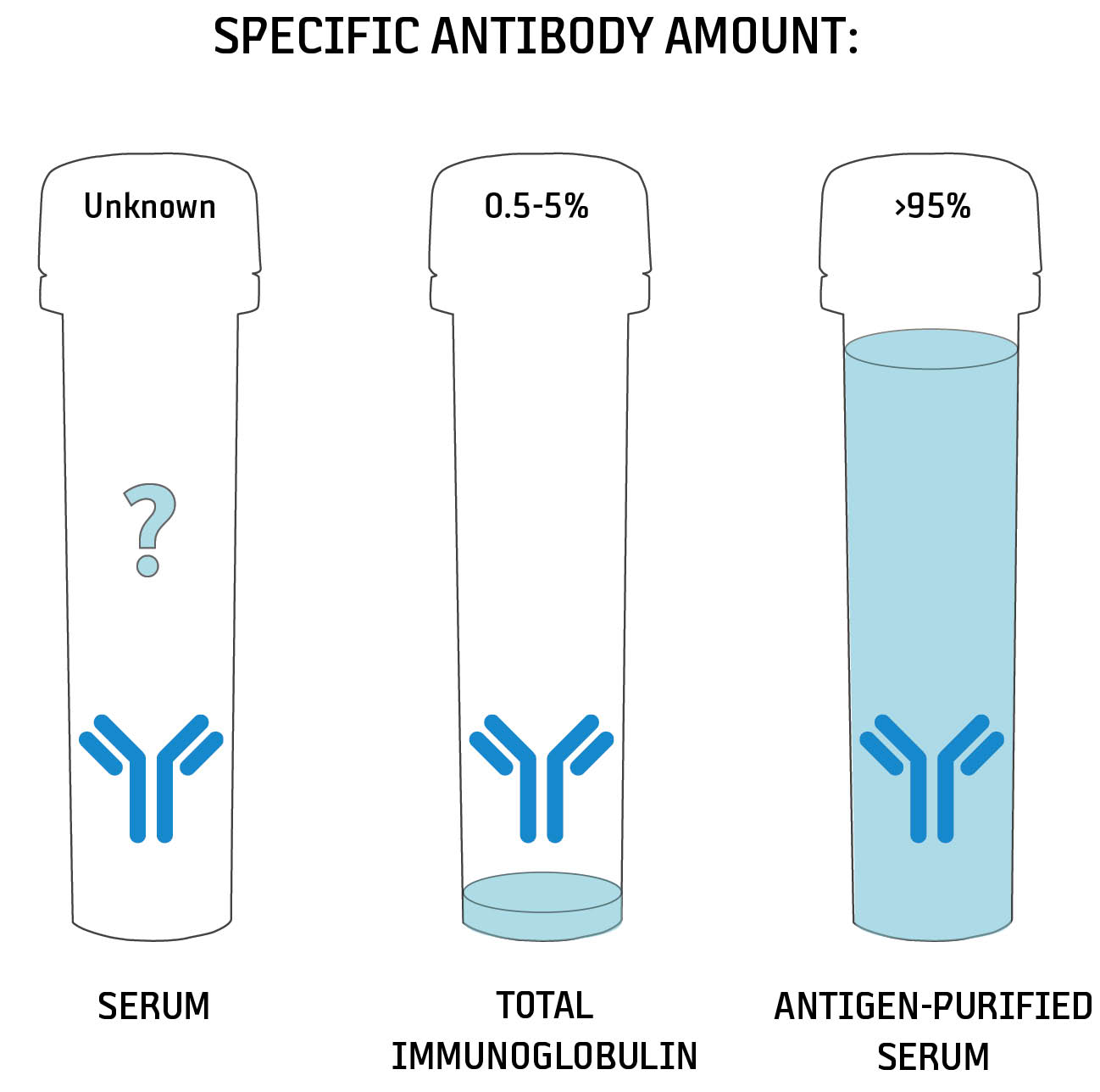
• How do you identify which antibodies are to be produced?
The antibody development process is executed in very close collaboration with the research community. Agrisera attends at least 10 conferences, and supports around 30 meetings all around the world each year. This gives us great opportunities to interact with researchers from many different fields of plant science, whose inputs are invaluable to us. Over the last 40 years, we have expanded our plant and algal research network to span all across the globe, with which we discuss future antibody developments and needs on a daily basis. Each suggestion is subjected to an internal validation process, developed and finetuned over decades, before an antibody production is initiated. We are working according to ISO 9001 standards, which means that our decision-making is fact-based and well documented. Having produced antibodies for 40 years has taught us a lot regarding antigen design, a crucial part of a successful antibody production process. Each target is carefully evaluated by peptide chemists, as each protein has unique properties that need to be considered.
• How do you deal with batch-to-batch variation?
Most antibodies in the Agrisera catalog are polyclonal, which means that they consist of a pool of antibodies to various epitopes on the target protein. Such antibodies are versatile in many different techniques, depending on where binding to the target protein occurs. With each new dose of antigen during immunization program, the immune response will be modified accordingly. This can result in differences in antibody behaviour, depending on the point in time at which the antibody was collected. Therefore, all serum aliquots from a given production, that has passed quality control by indirect ELISA, are pooled. The whole collected material should never be subjected to purification at the same time, as antibodies may lose reactivity following the purification process. We carefully optimize and monitor this step by indirect ELISA quality control. As antibodies bind to various epitopes, their antigen binding domain will be different depending on the antibody. This may also influence their final stability. Antibodies may lose reactivity after one, 10 or 40 years. This is not possible to predict or test, so we rely on our extensive experience and knowledge, as well as on the testing of Agrisera antibodies in various techniques, in collaboration with research laboratories all around the world.
• What are your criteria for making an antibody available for the research community?
The reactivity of an antibody to the recombinant protein or peptide it was made to in an ELISA assay, does not provide any information about how reactive the antibody will be when working with endogenous samples. Effectiveness of an antibody to recognize its target protein in a tissue will depend on many factors, including target protein abundance, localization in the cellular compartment, organ, developmental stage, extraction conditions (Western blot) or fixation method (immunolocalization). The target protein may be folded differently on a PVDF or nitrocellulose membrane, compared to in the tissue, following a fixation protocol. Therefore, each technique requires separate validation. As a plethora of samples and mutants is required for the validation of Agrisera antibodies, we conduct this process in close collaboration with researchers worldwide. Agrisera antibodies are validated in at least two independent laboratories before being released, and the validation data includes specific mutants (knockout or knockdown), cellular fractions, or various developmental stages. Our validation process employs a combination of direct and indirect validation methods.
• Why are Agrisera antibodies provided in lyophilized format?
Agrisera has chosen to provide antibodies in lyophilized format due to several benefits, including:
- Longer product shelf-life,
- No risk of antibody degradation in the unlikely event of a delayed shipment,
- Environmentally-friendly shipping, with no need for dry ice (the production of which is expensive and energy-consuming).
This method of delivering catalog antibodies has successfully been used by Agrisera for the last 25 years. The preserved activity of all lyophilized antibodies is confirmed by reconstitution of the product and testing it in a specific technique, such as Western blot or immunolocalization. Upon receiving a lyophilized antibody from Agrisera, it can be stored in -20°C and reconstituted before use. Specific instructions regarding reconstitution volume and addition of glycerol are provided on each product information sheet.
• How many publications are Agrisera antibodies cited in so far?
Agrisera antibodies can be found in thousands of scientific publications, with a publication record since 2000. Agrisera antibodies are cited in over 800 scientific publications per year, and the most relevant publications for each antibody are listed on the respective product information sheet. Agrisera was awarded with the 2019 CiteAb award Plant Science Antibody Supplier of the Year, due to our antibodies having the most extensive publication record in plant science.
























